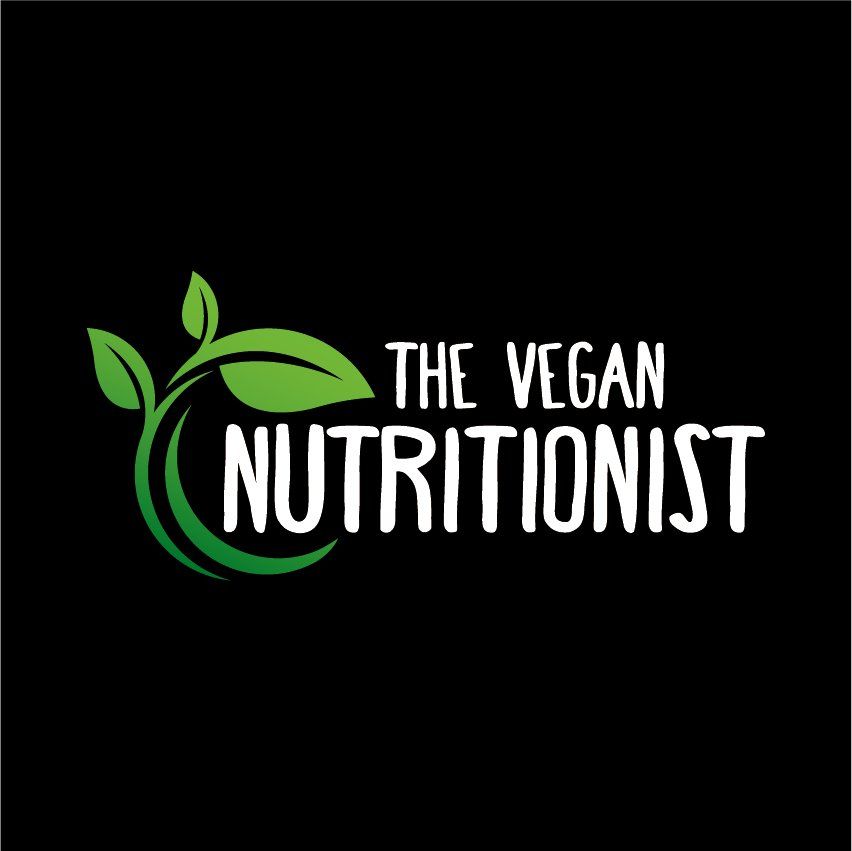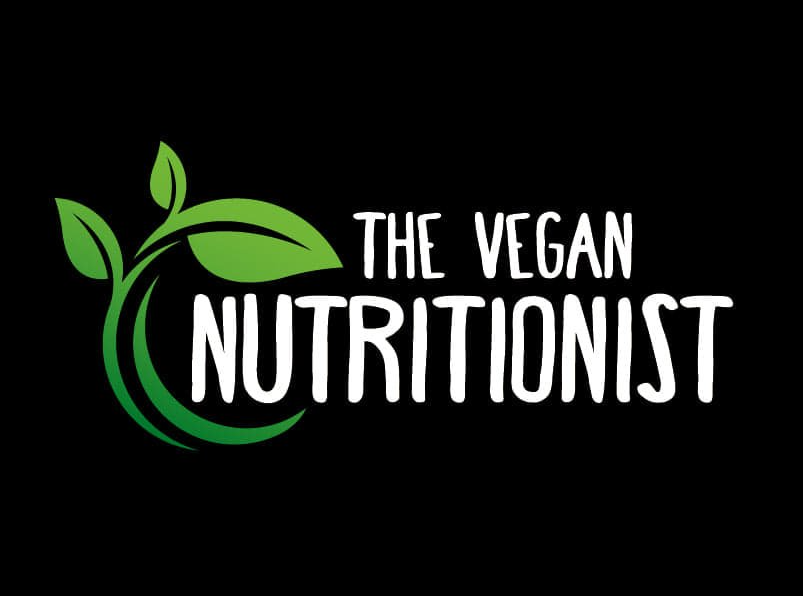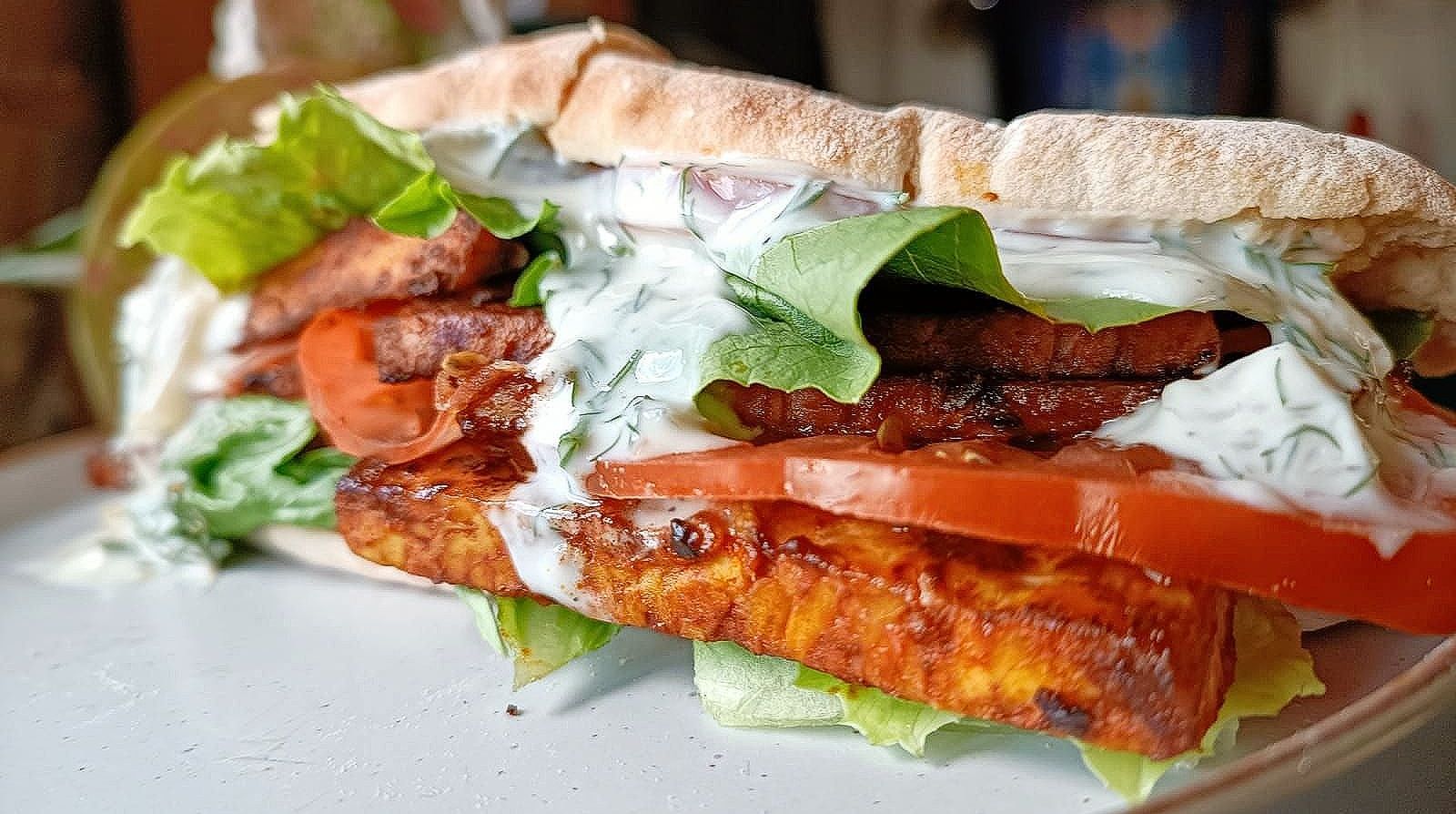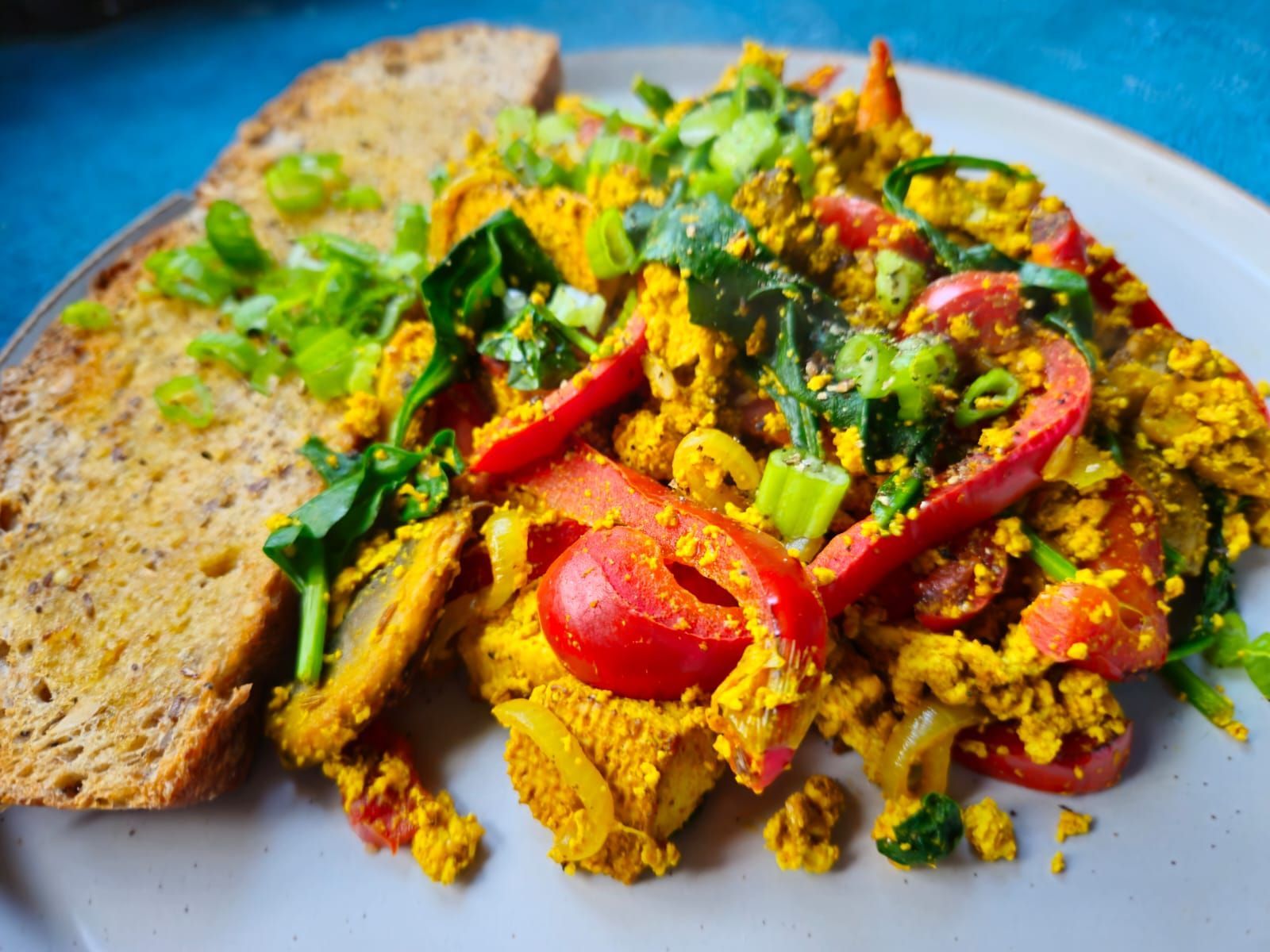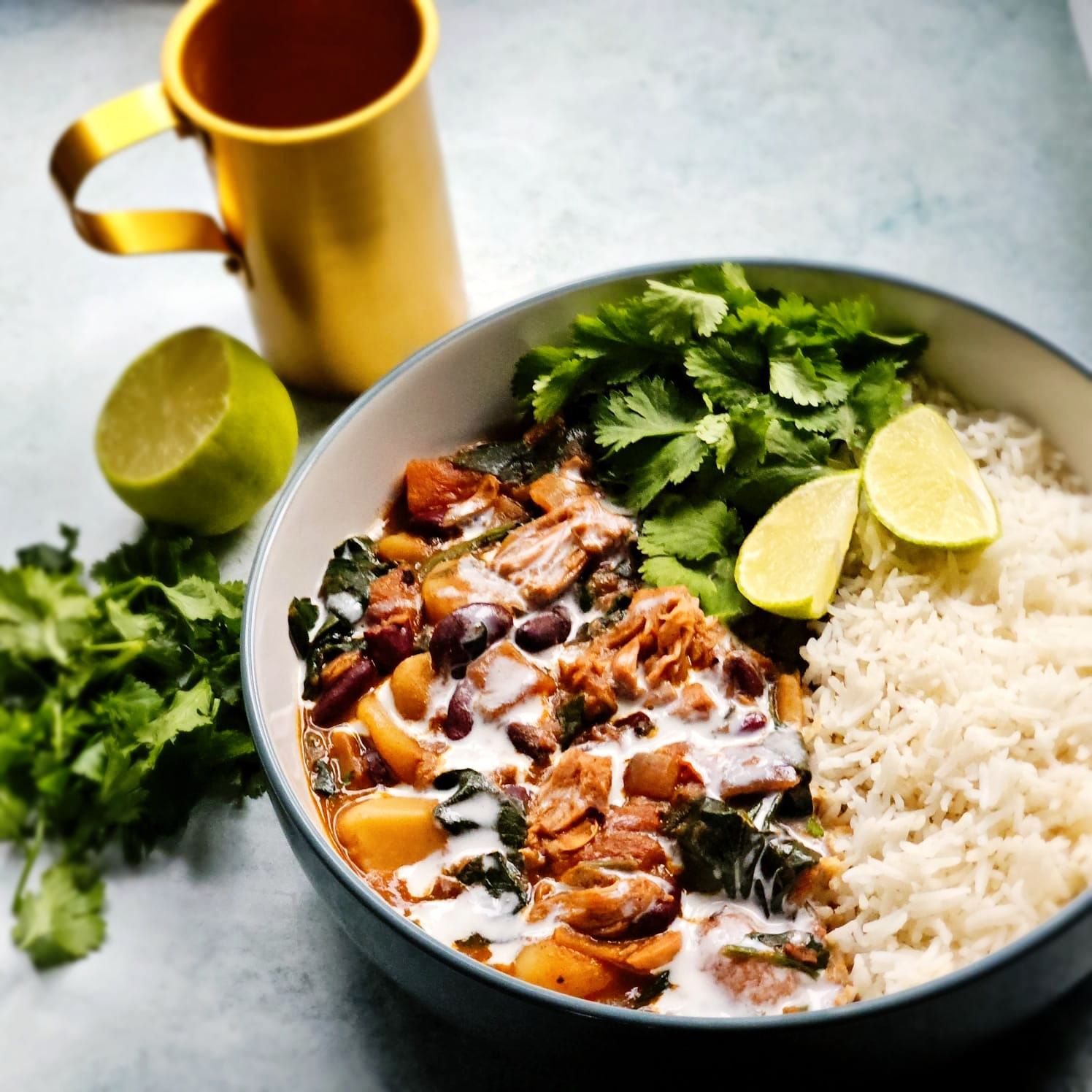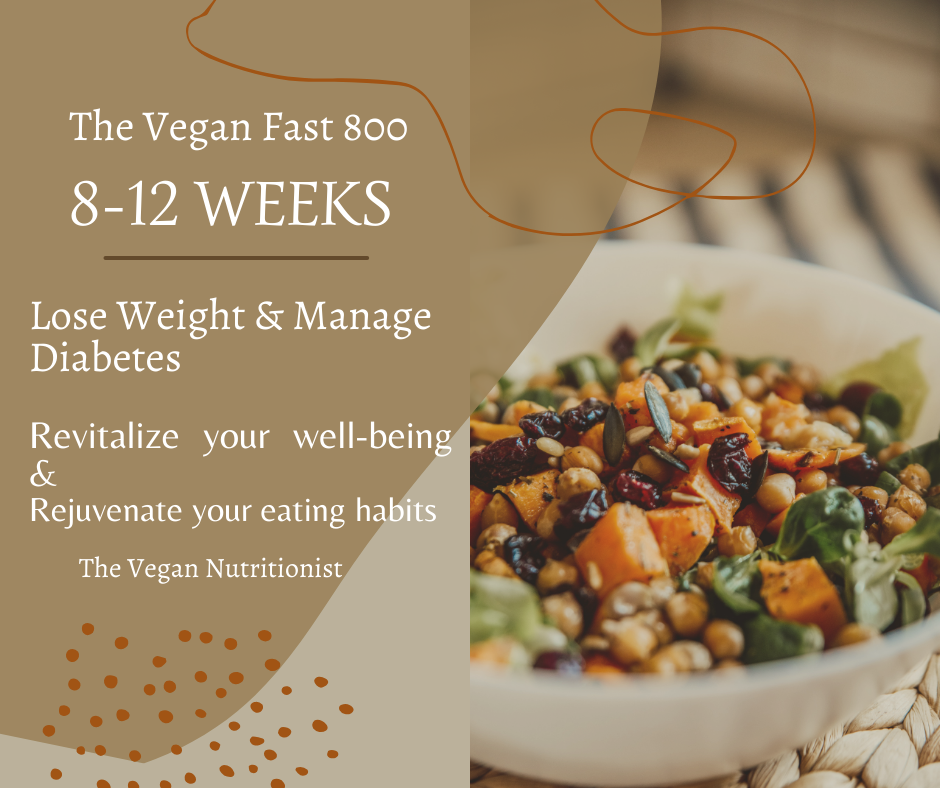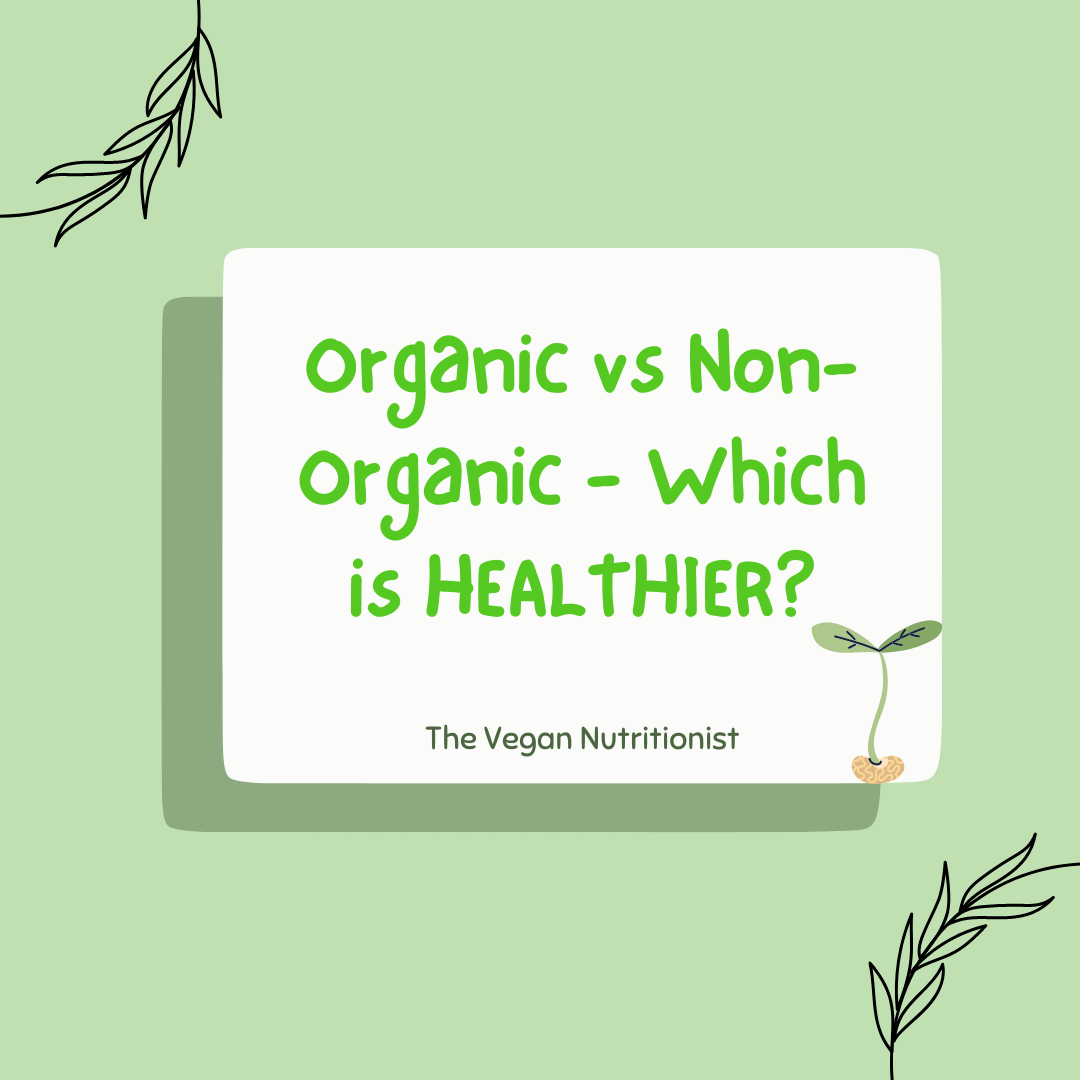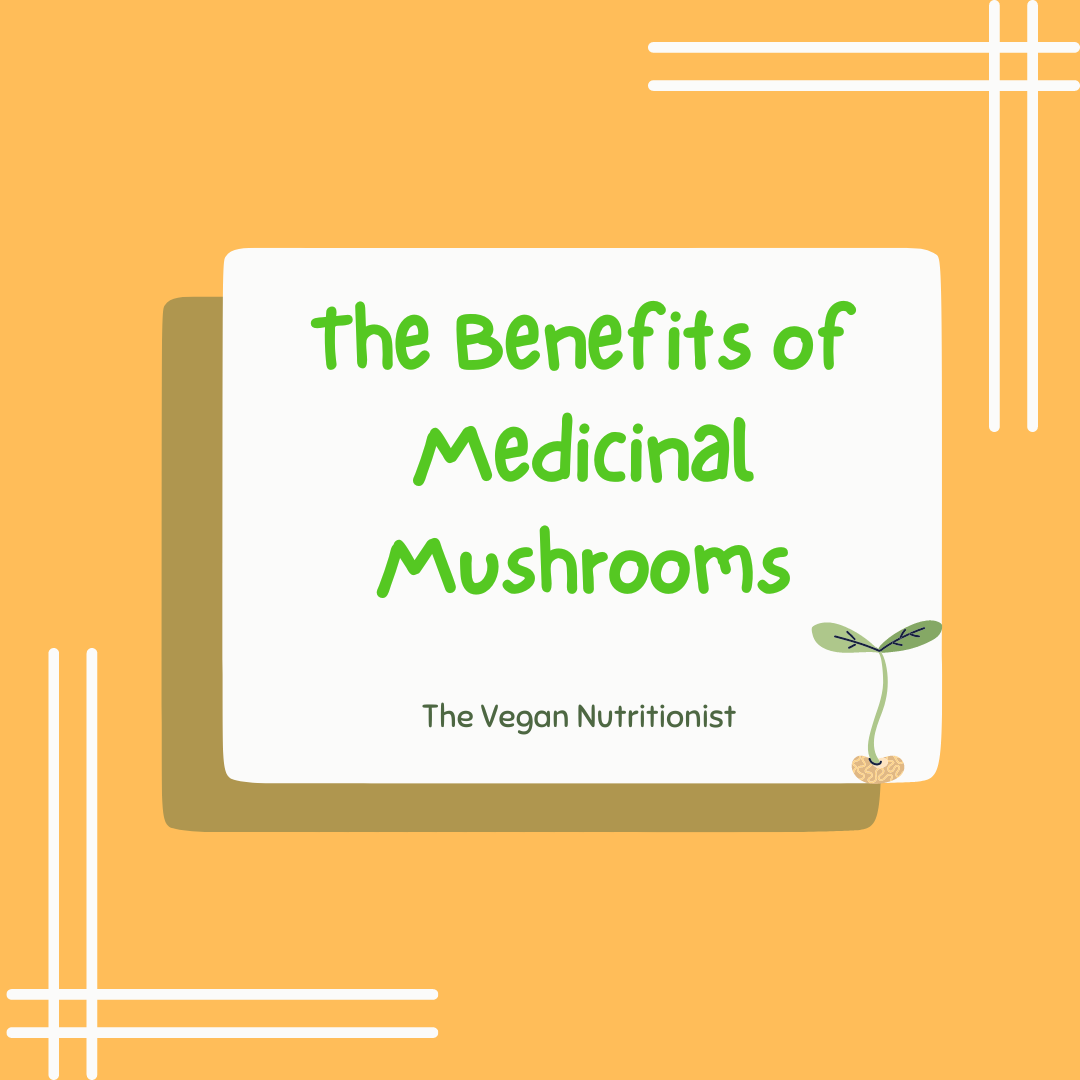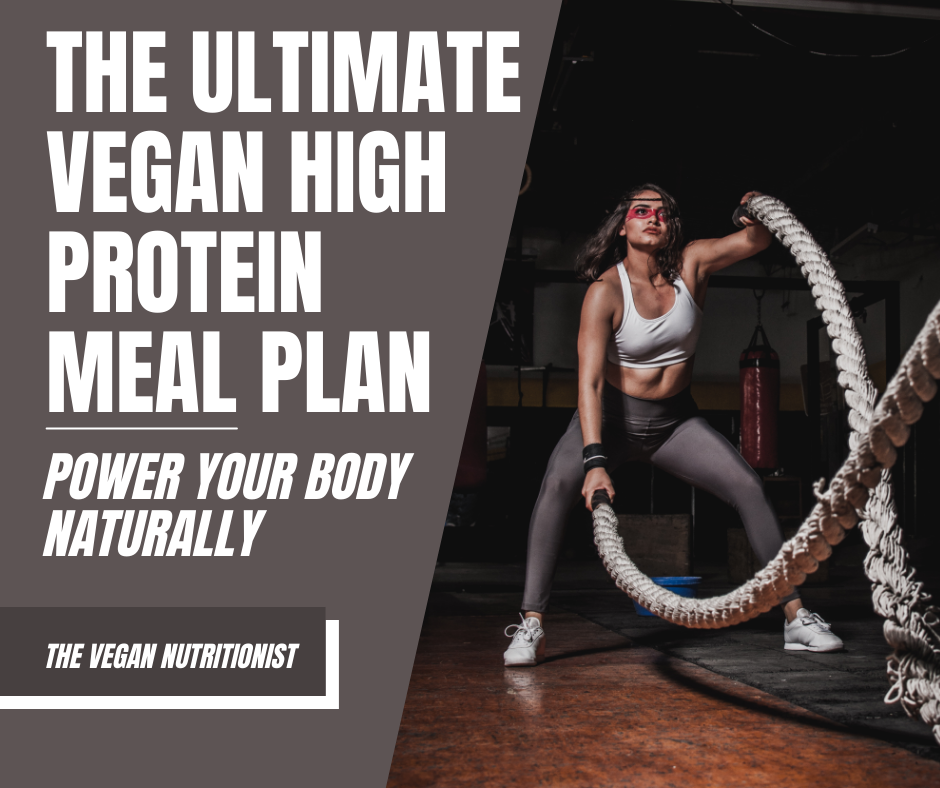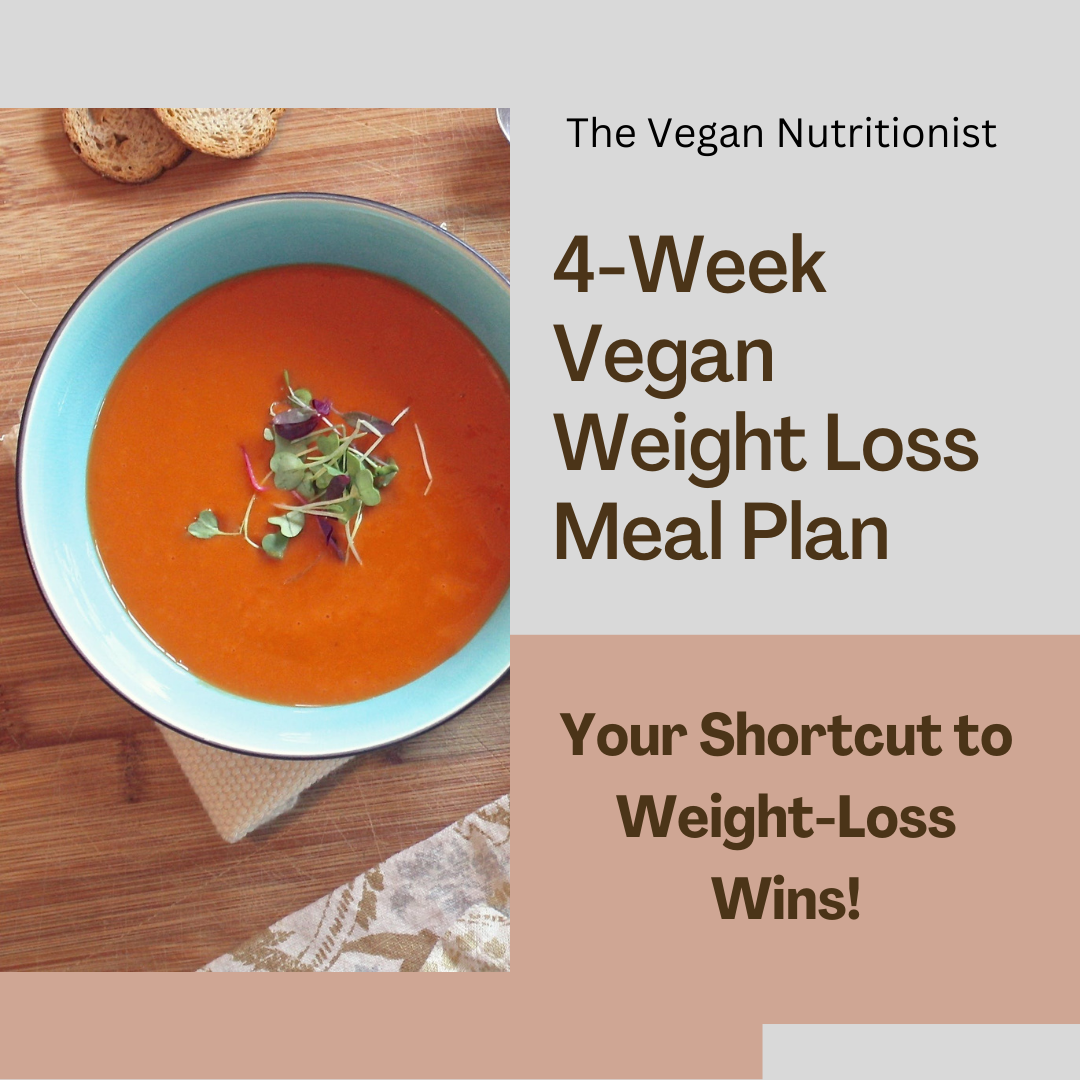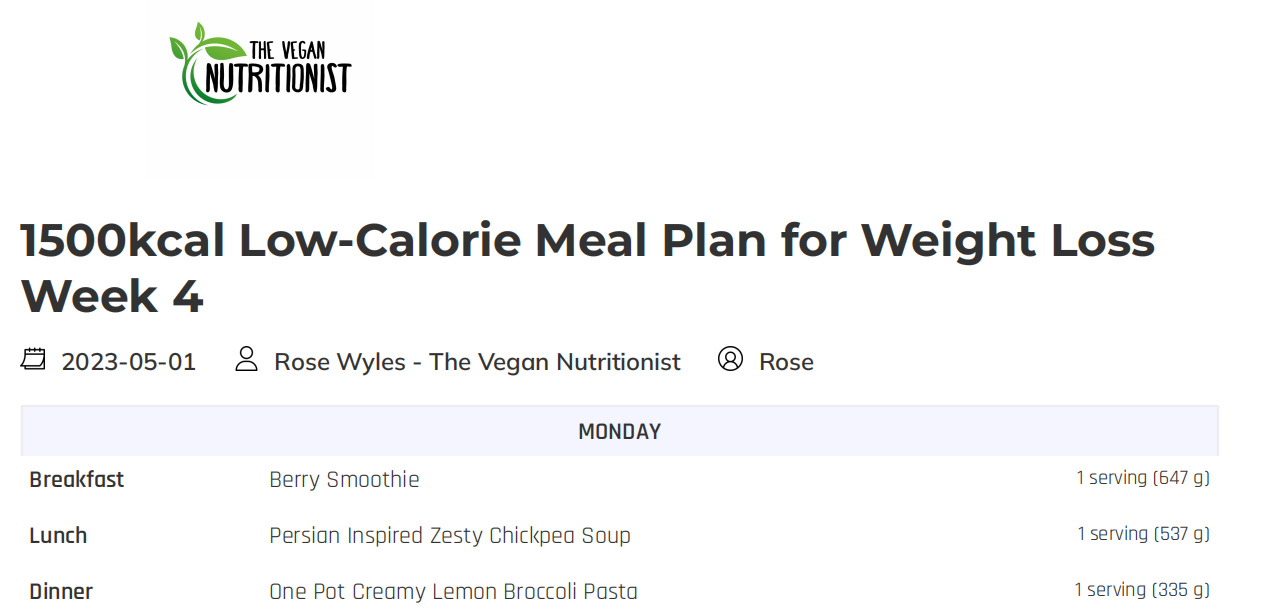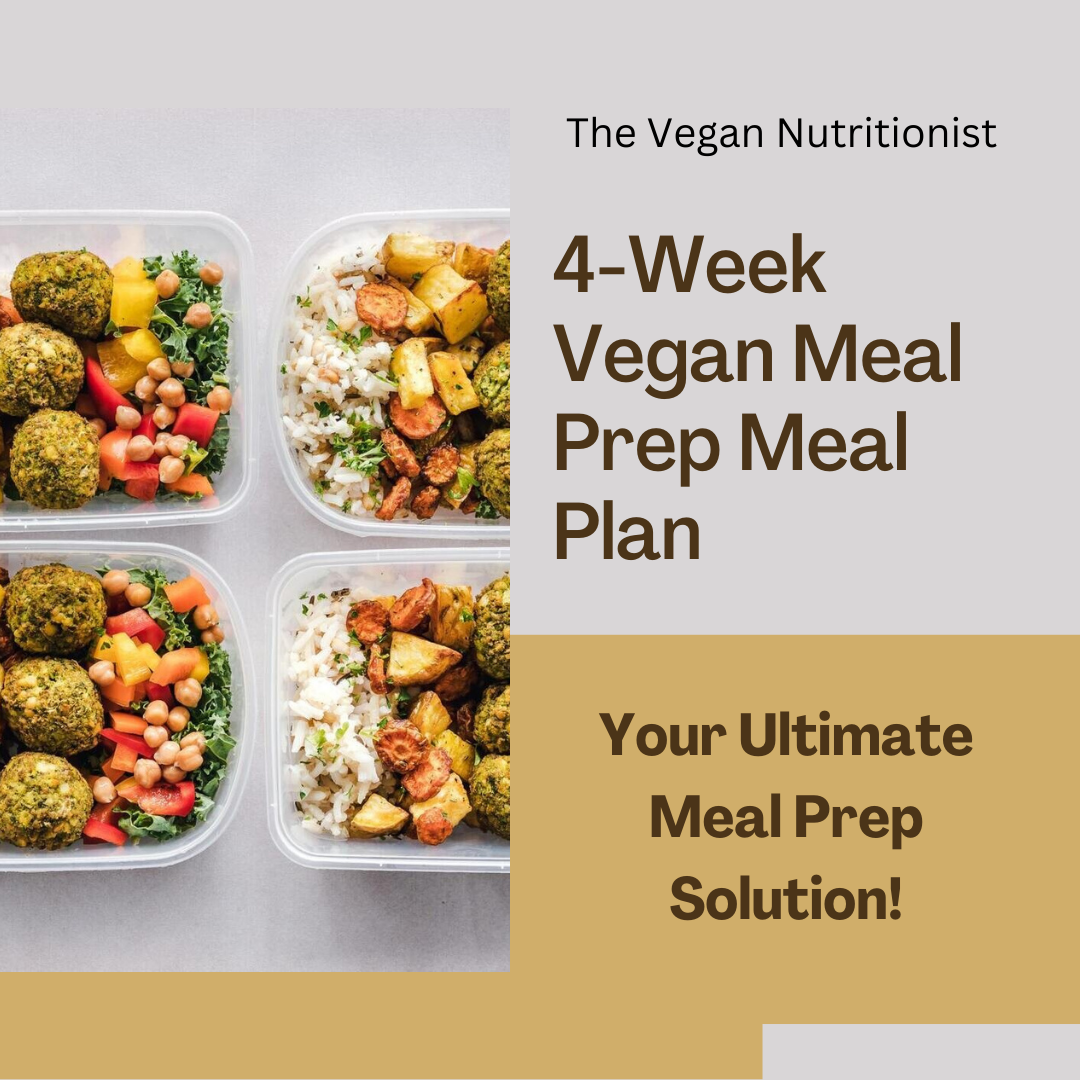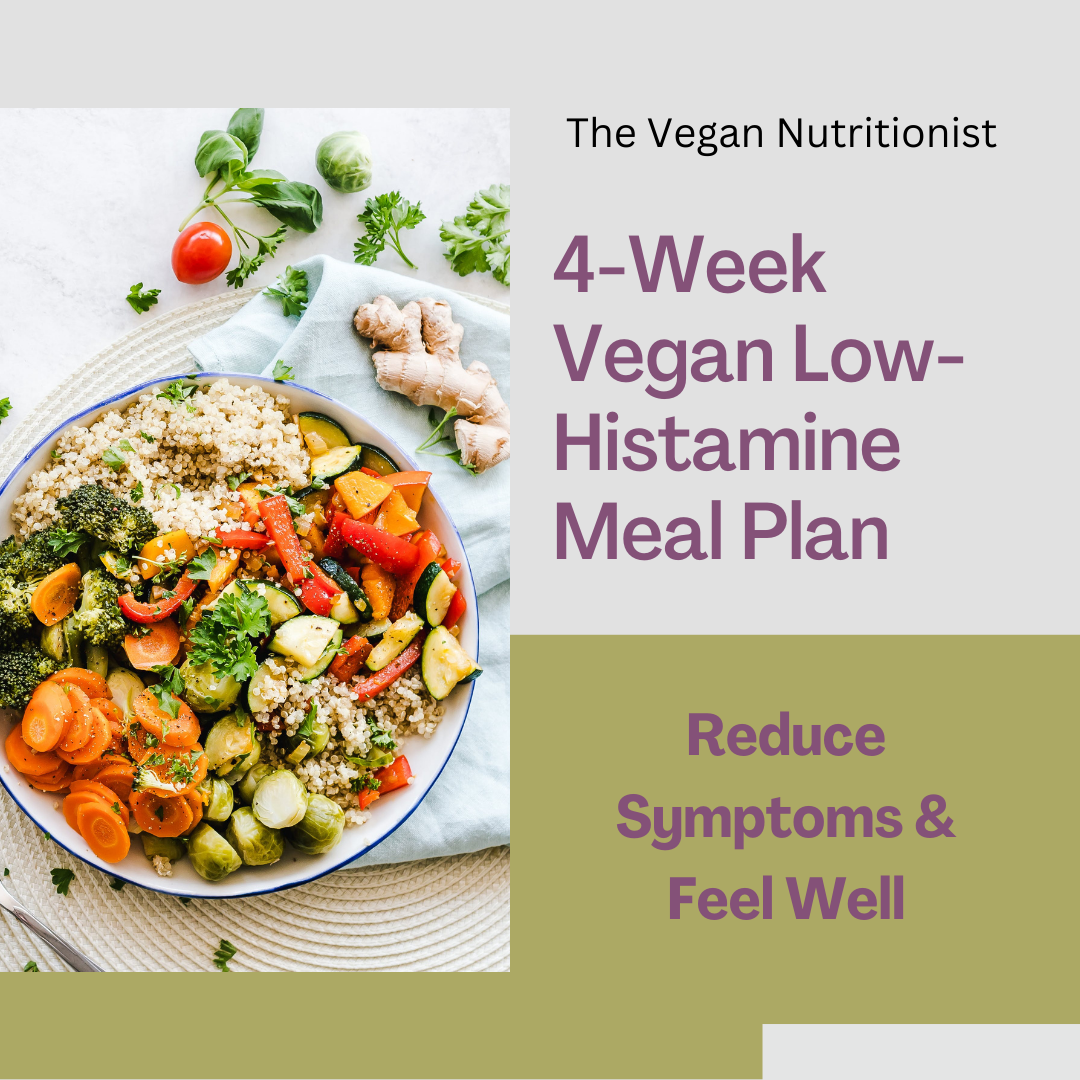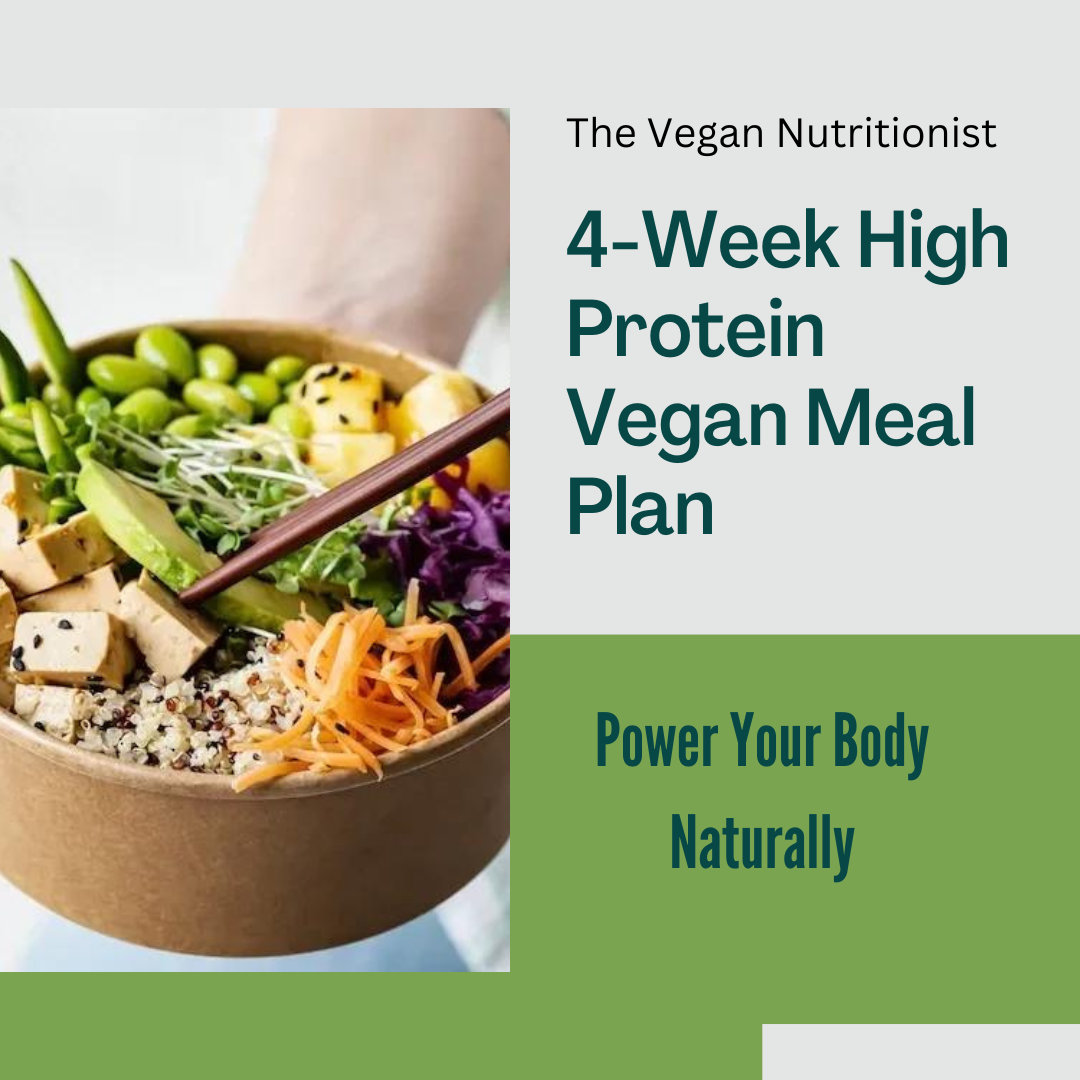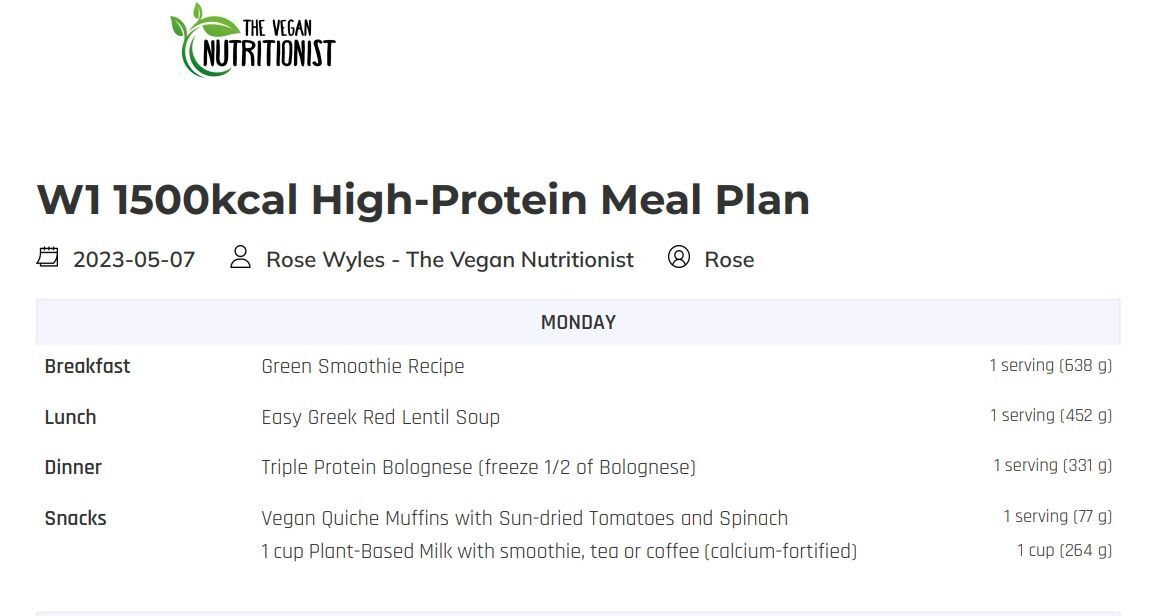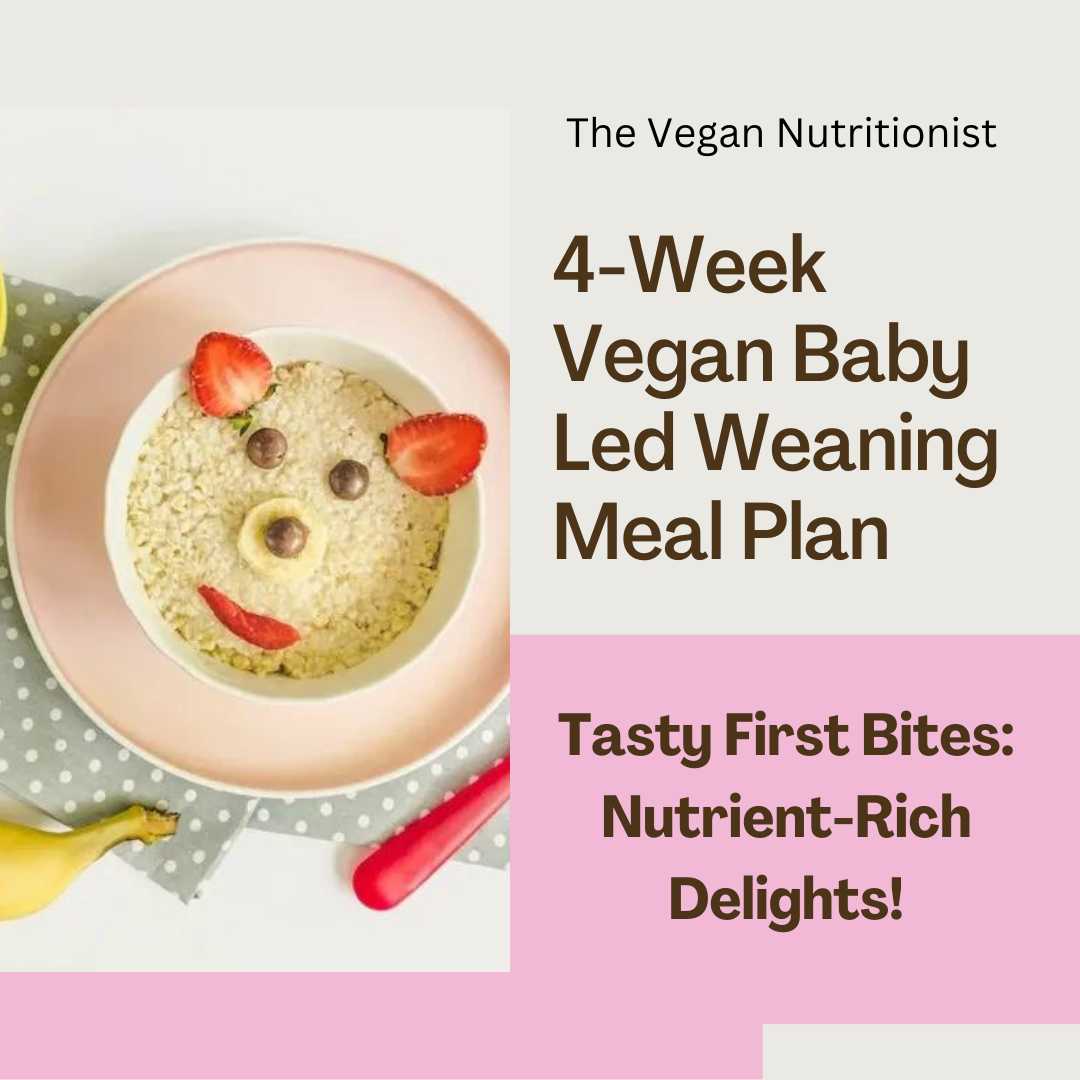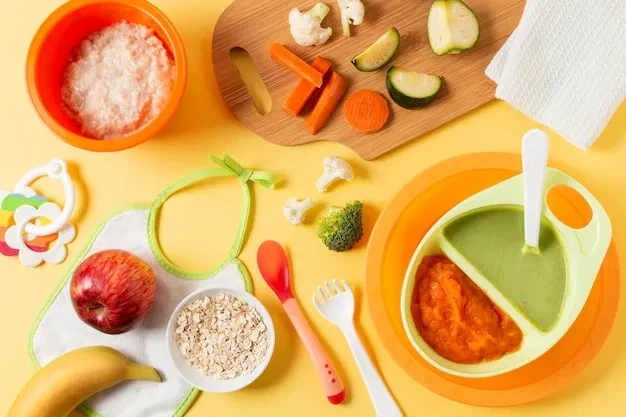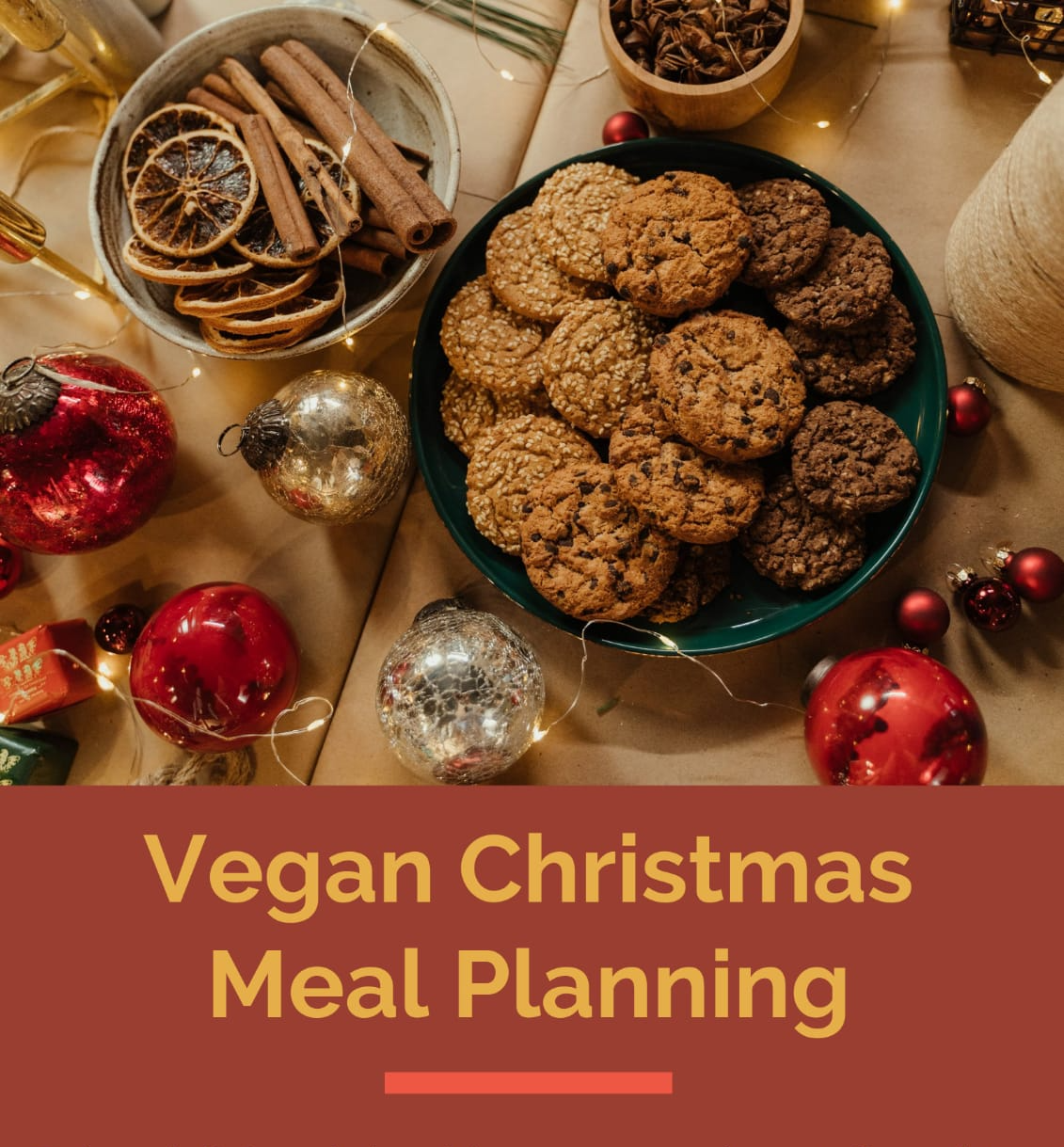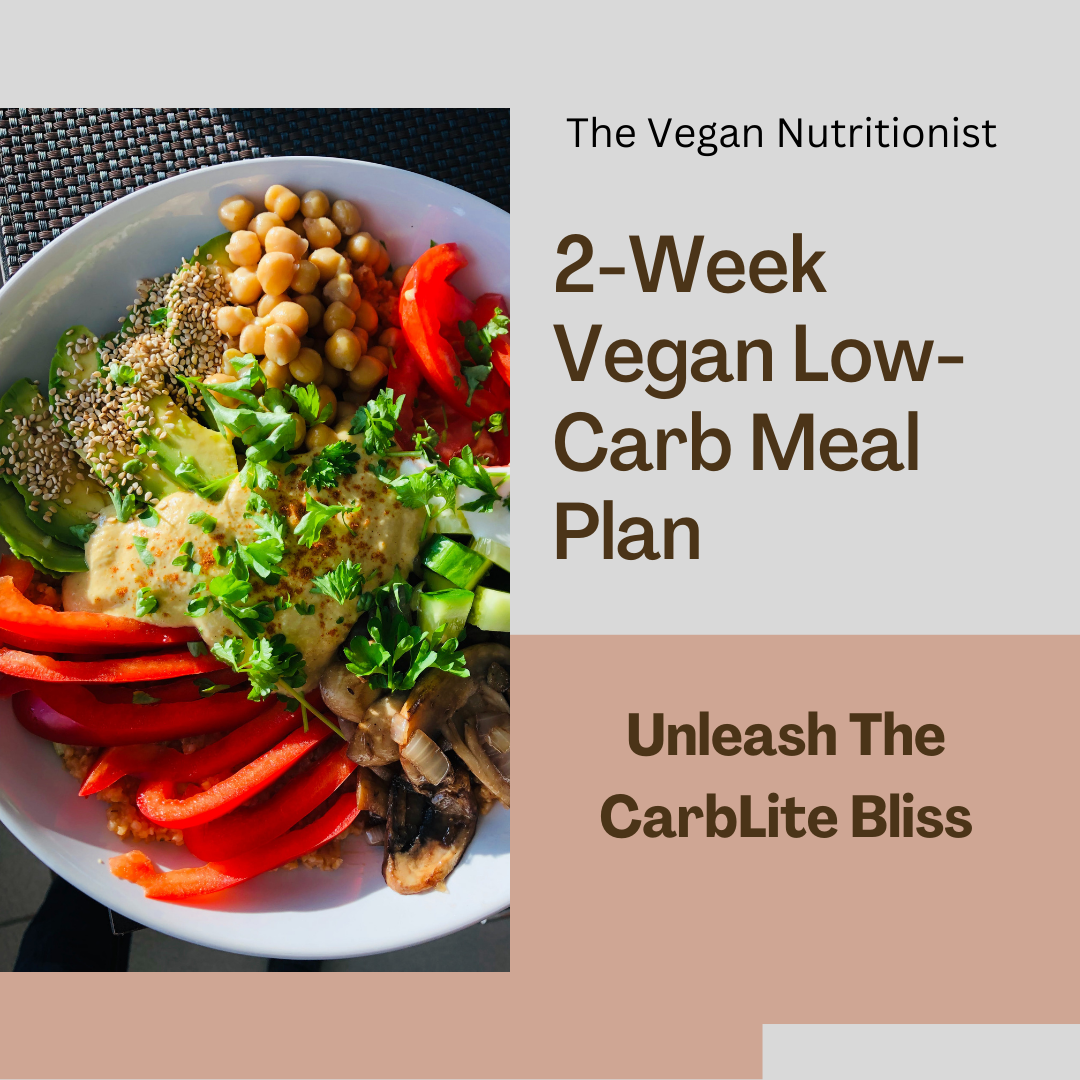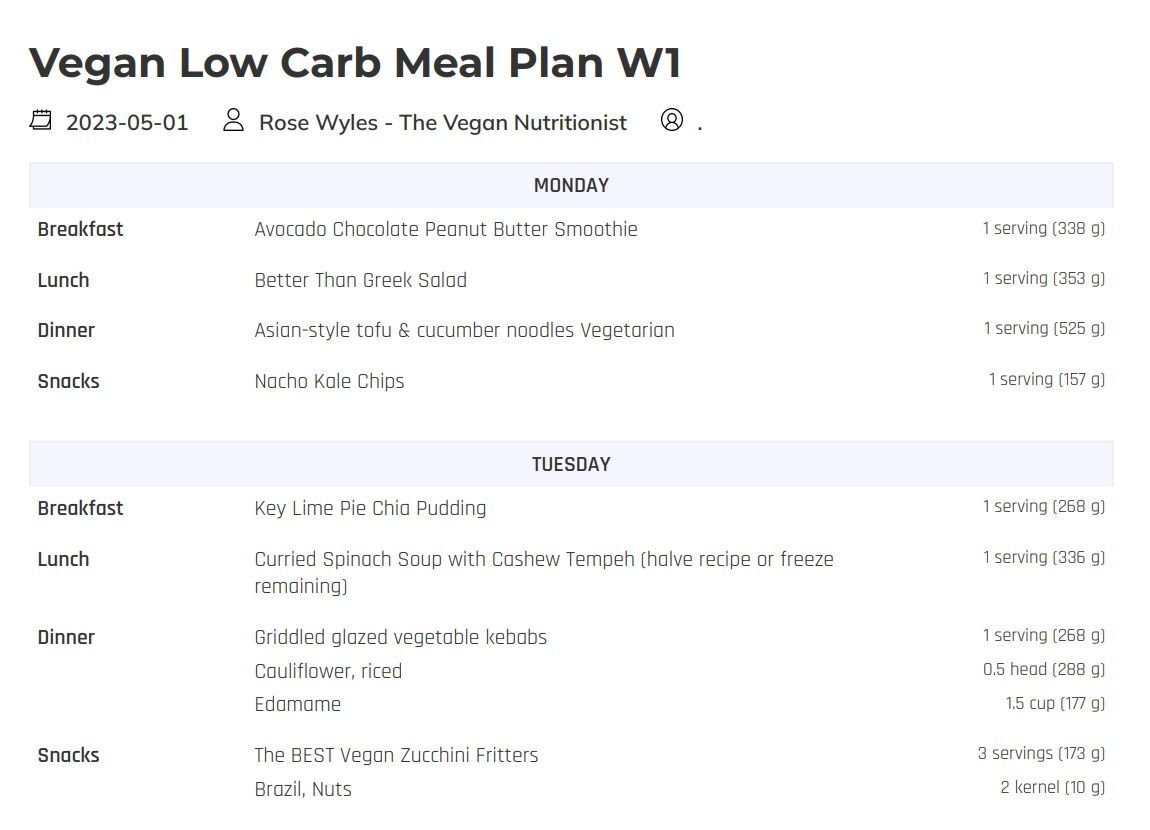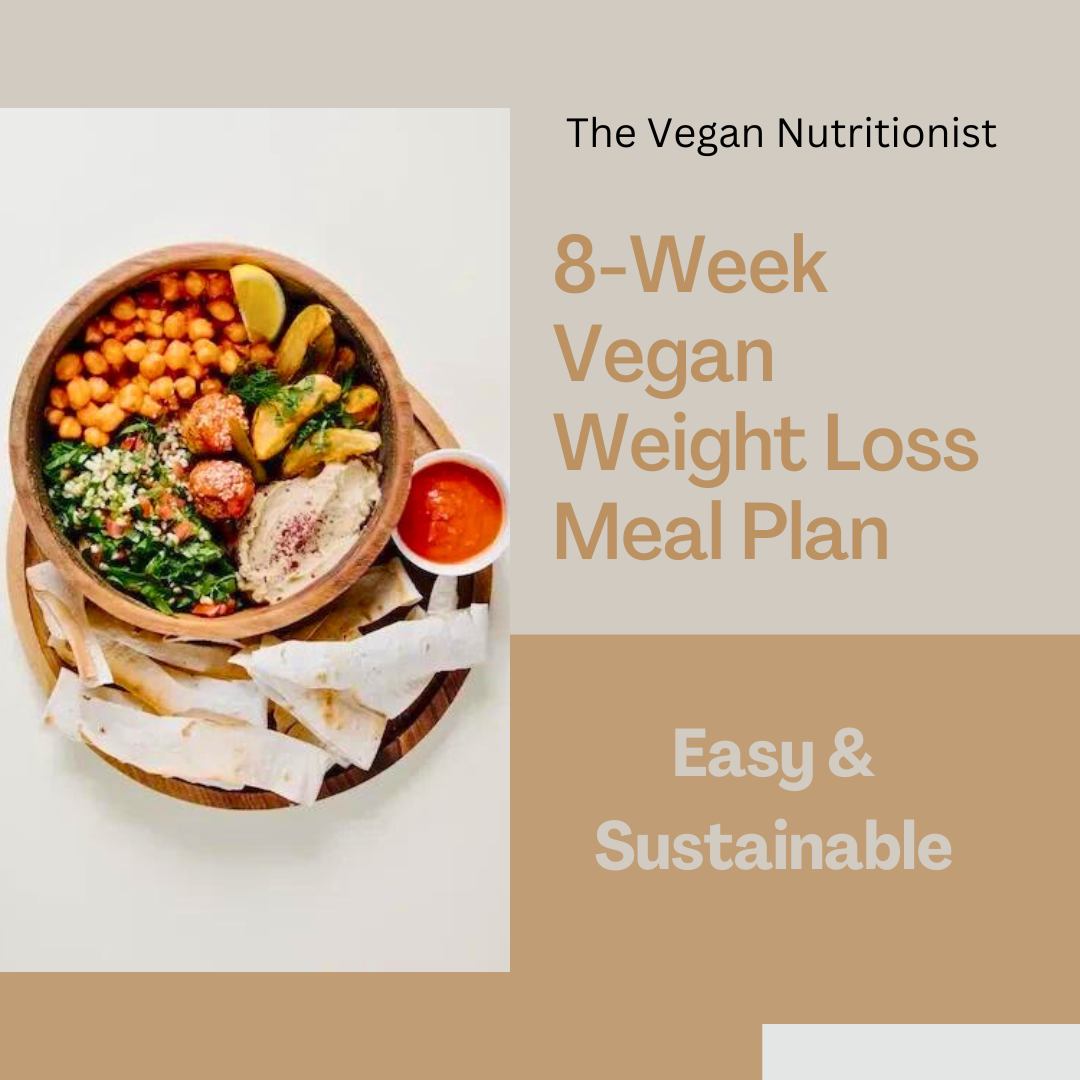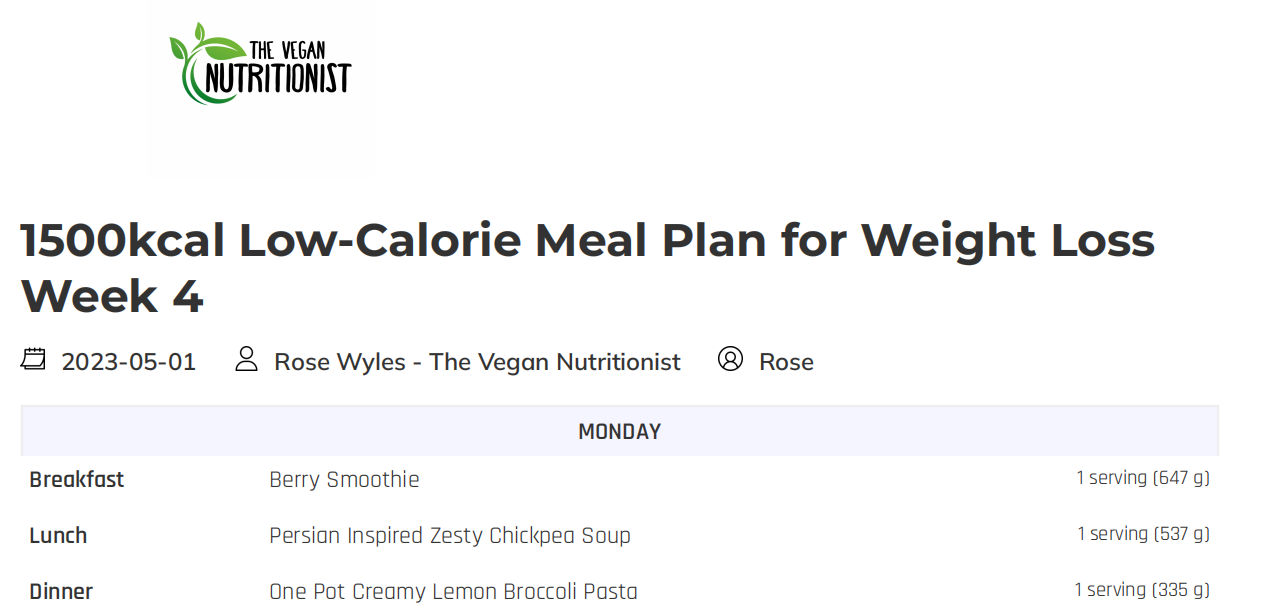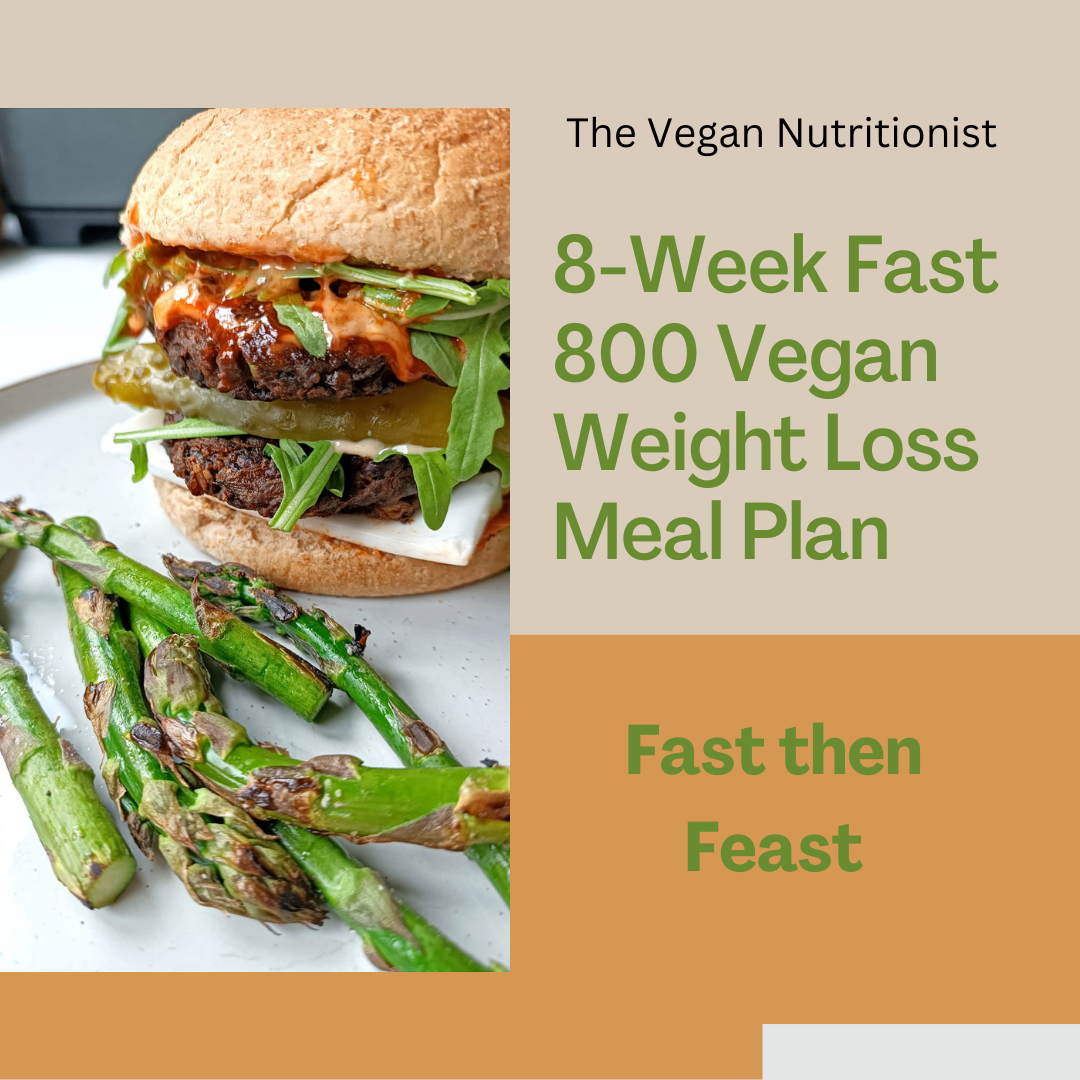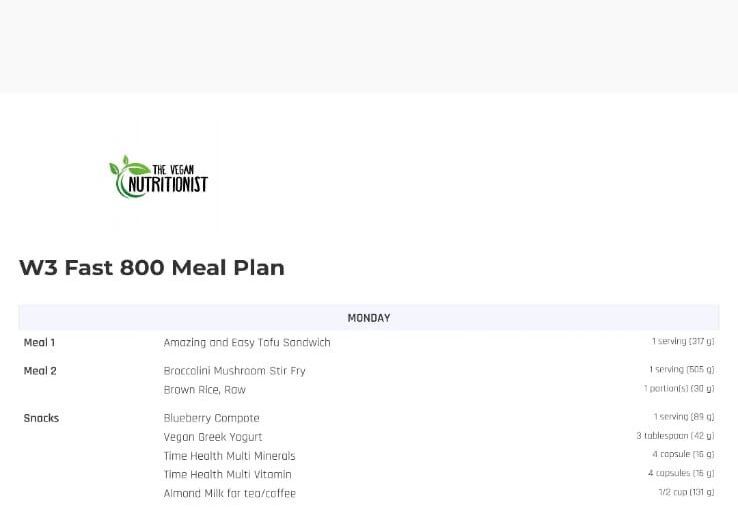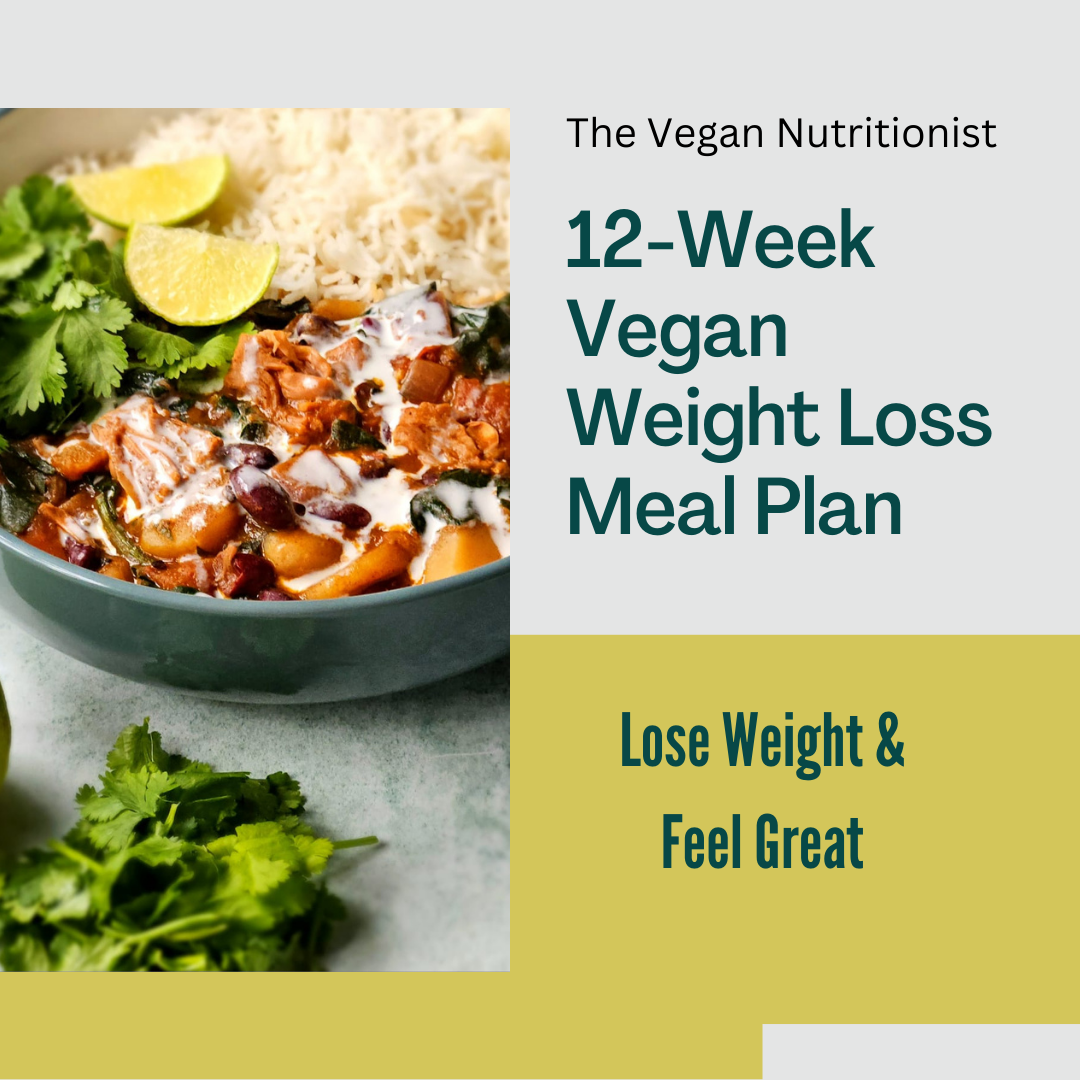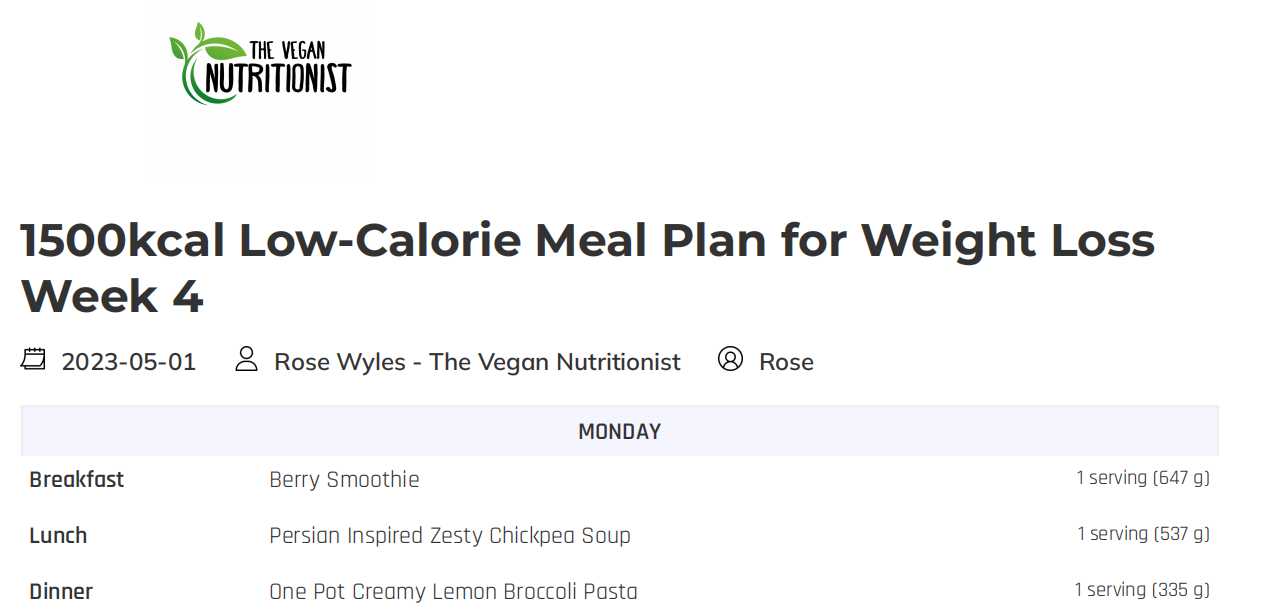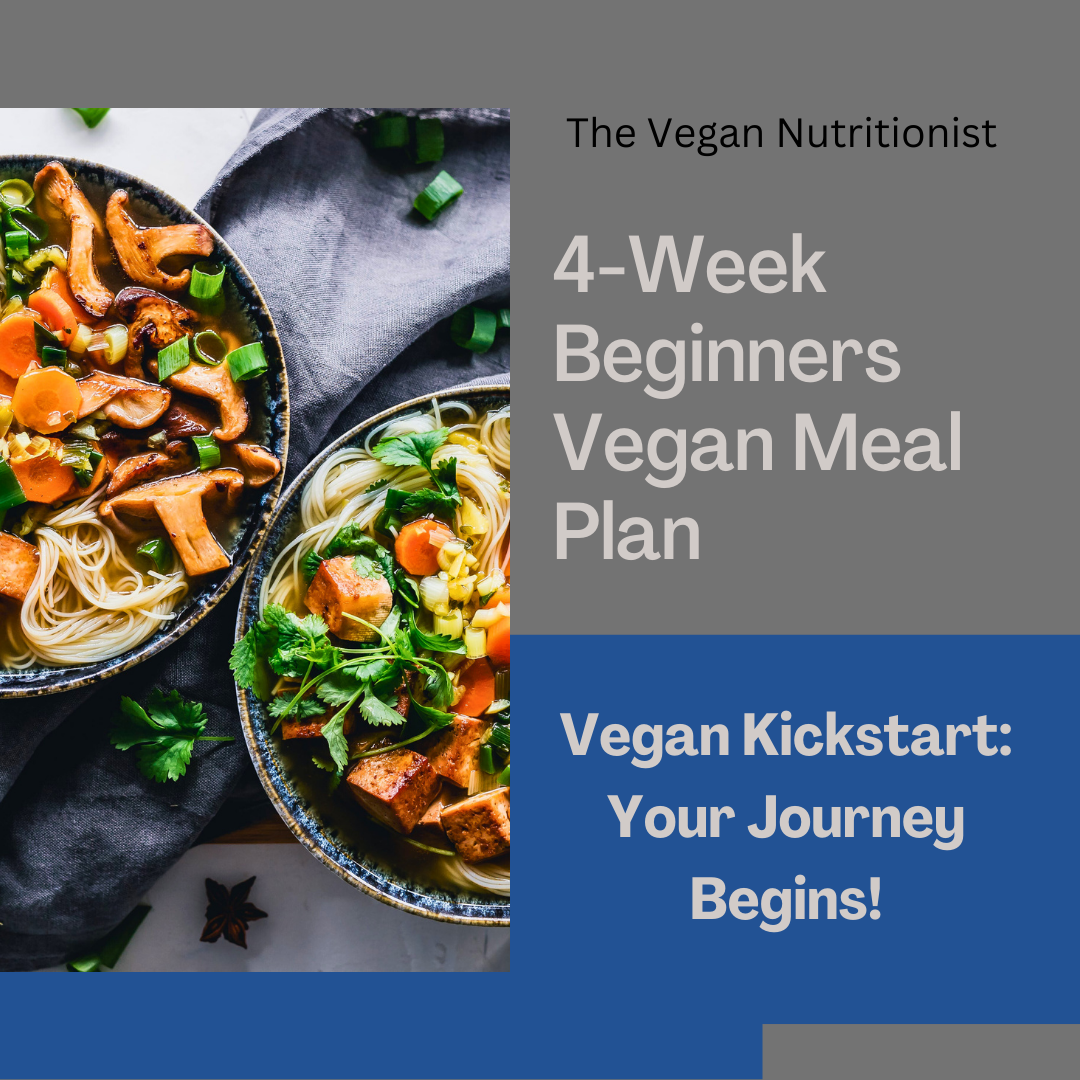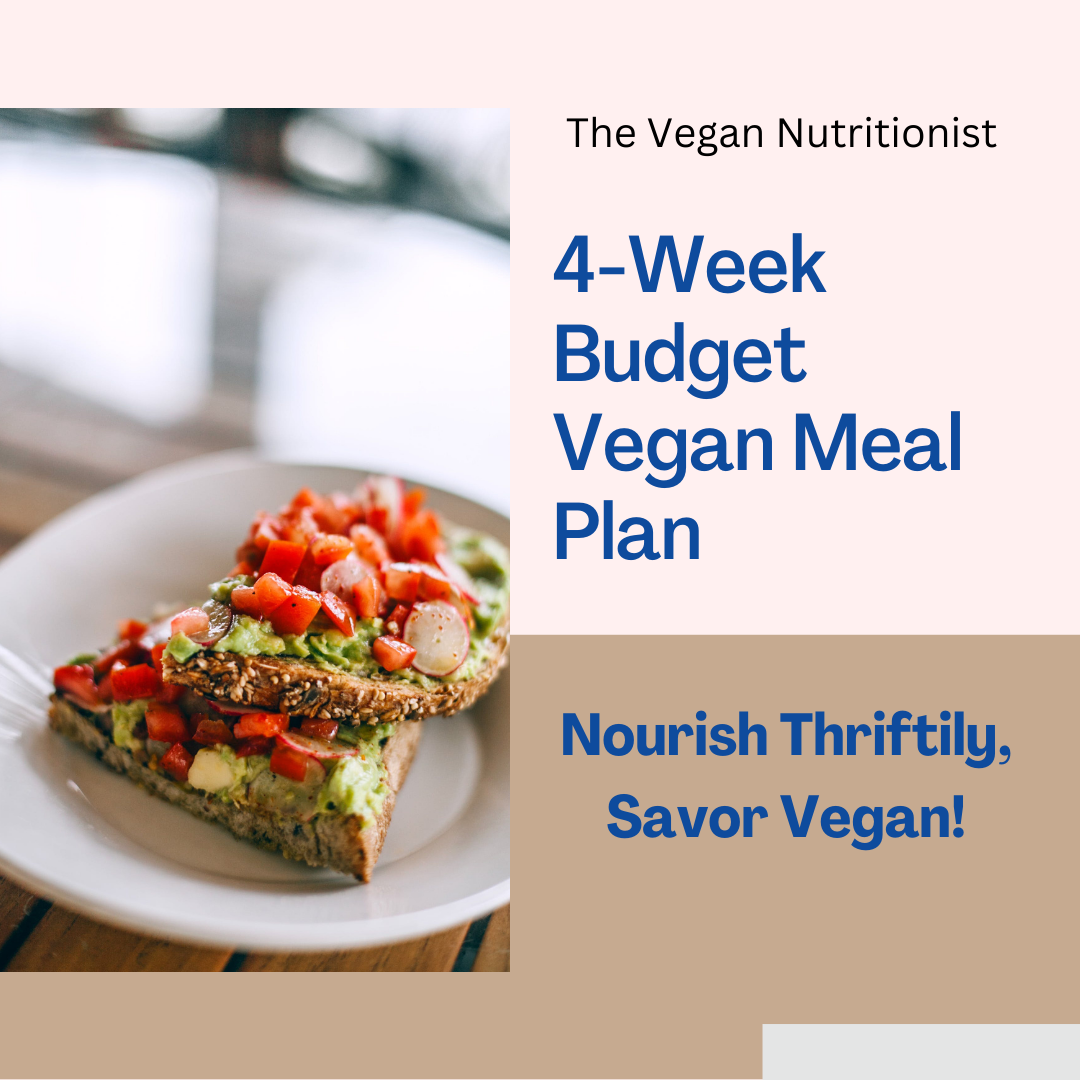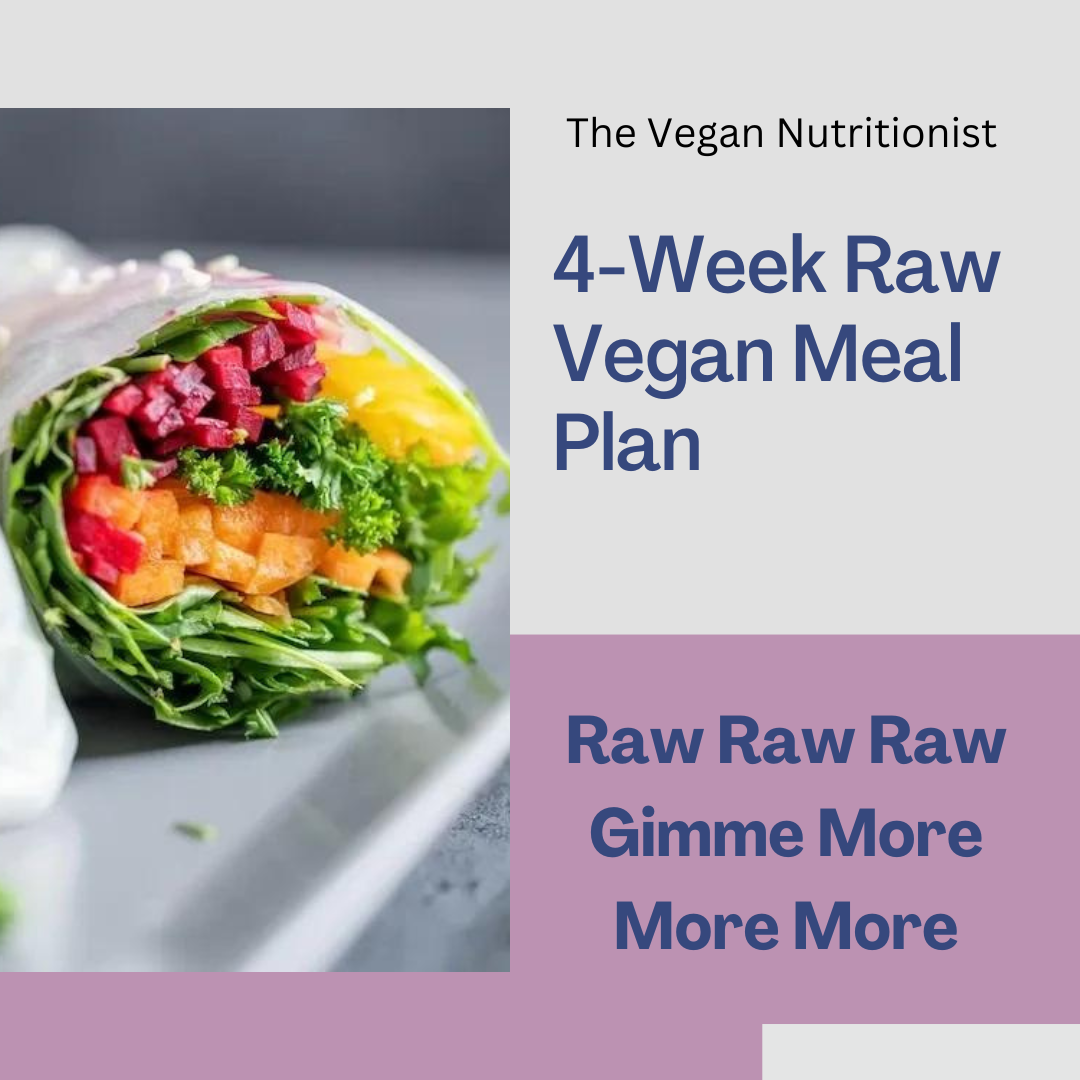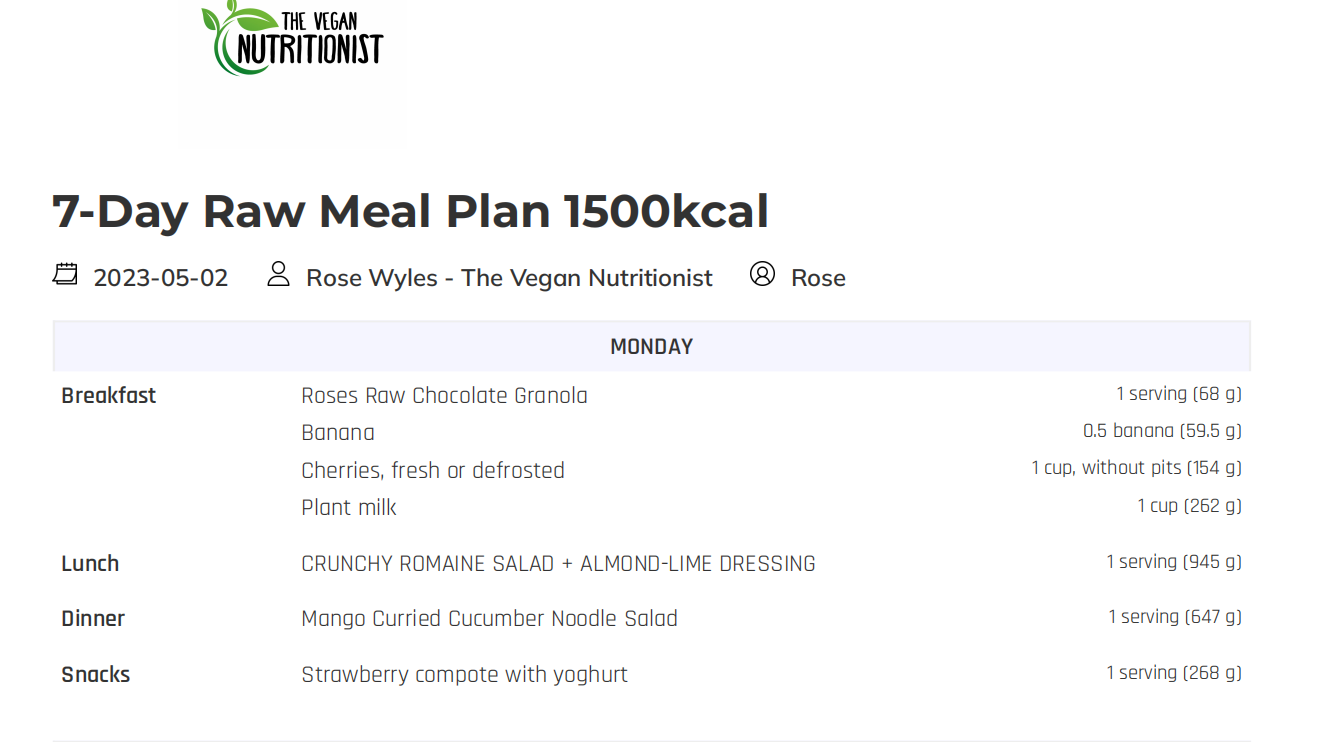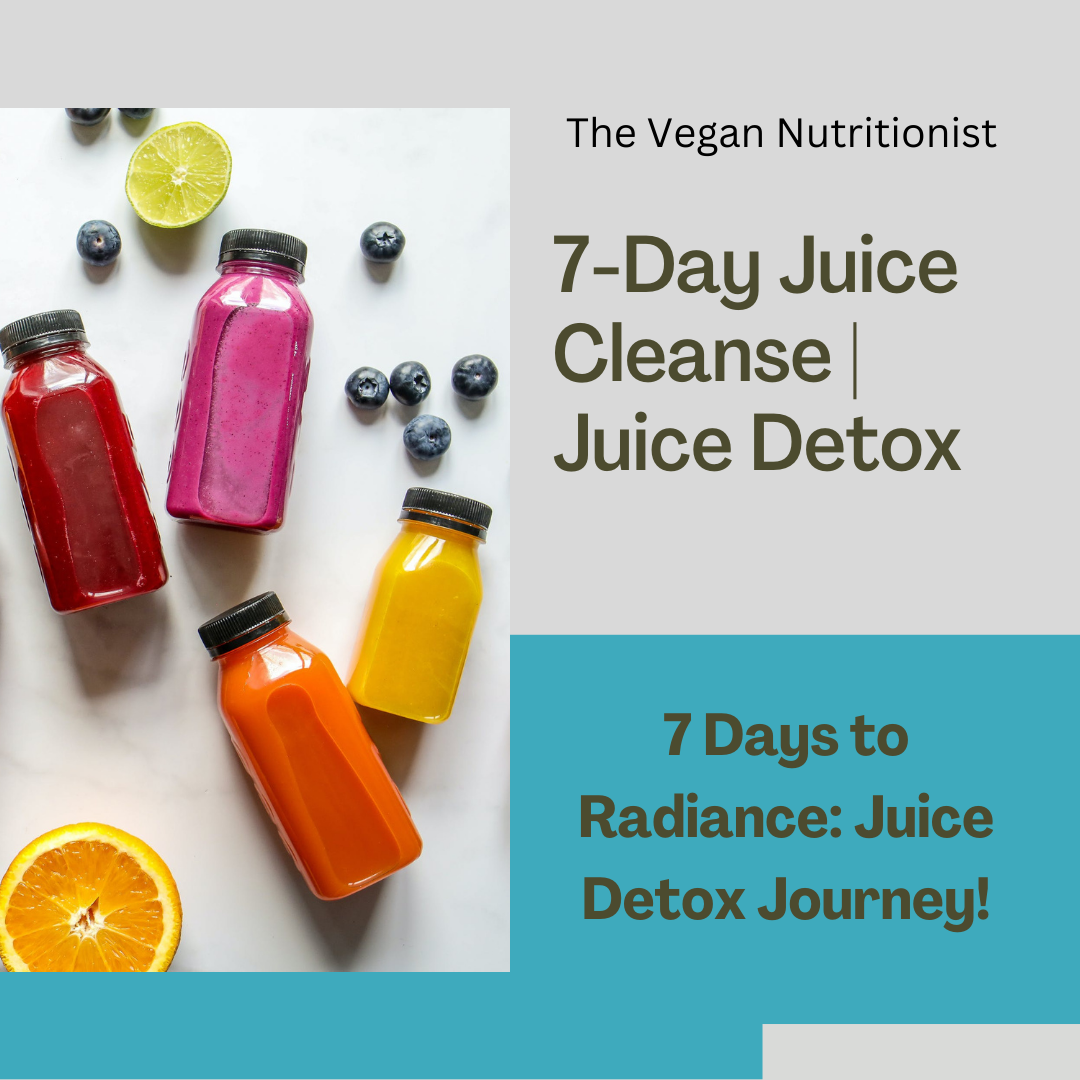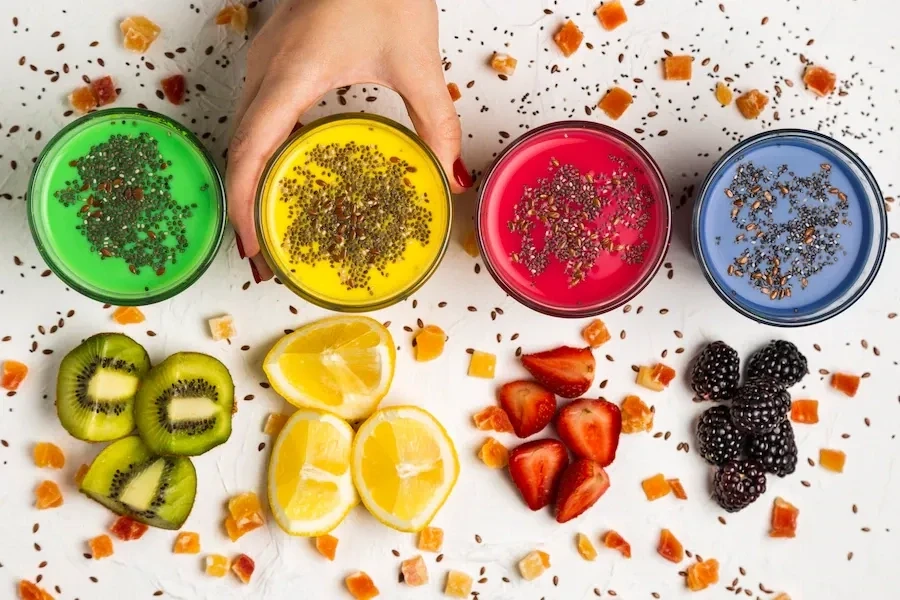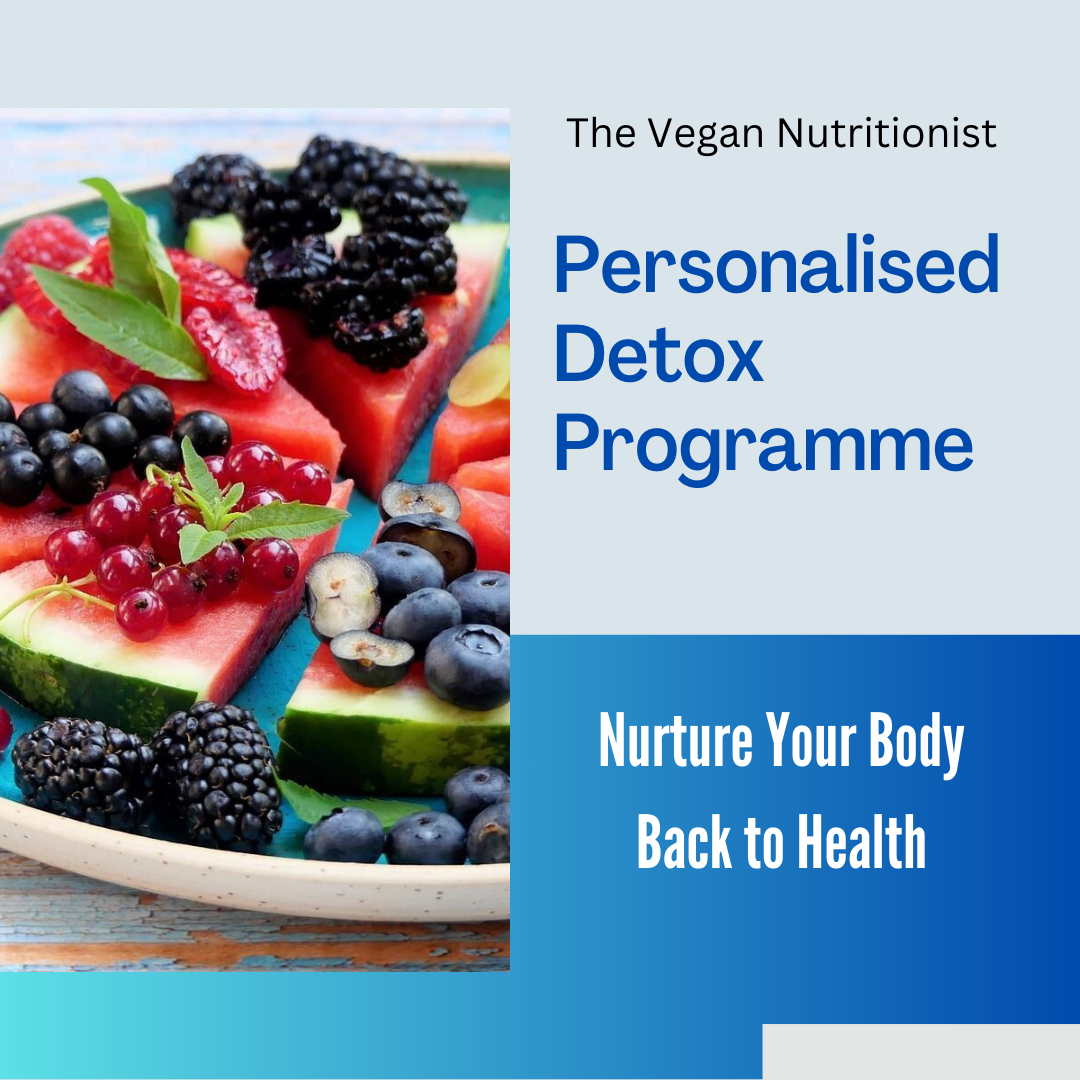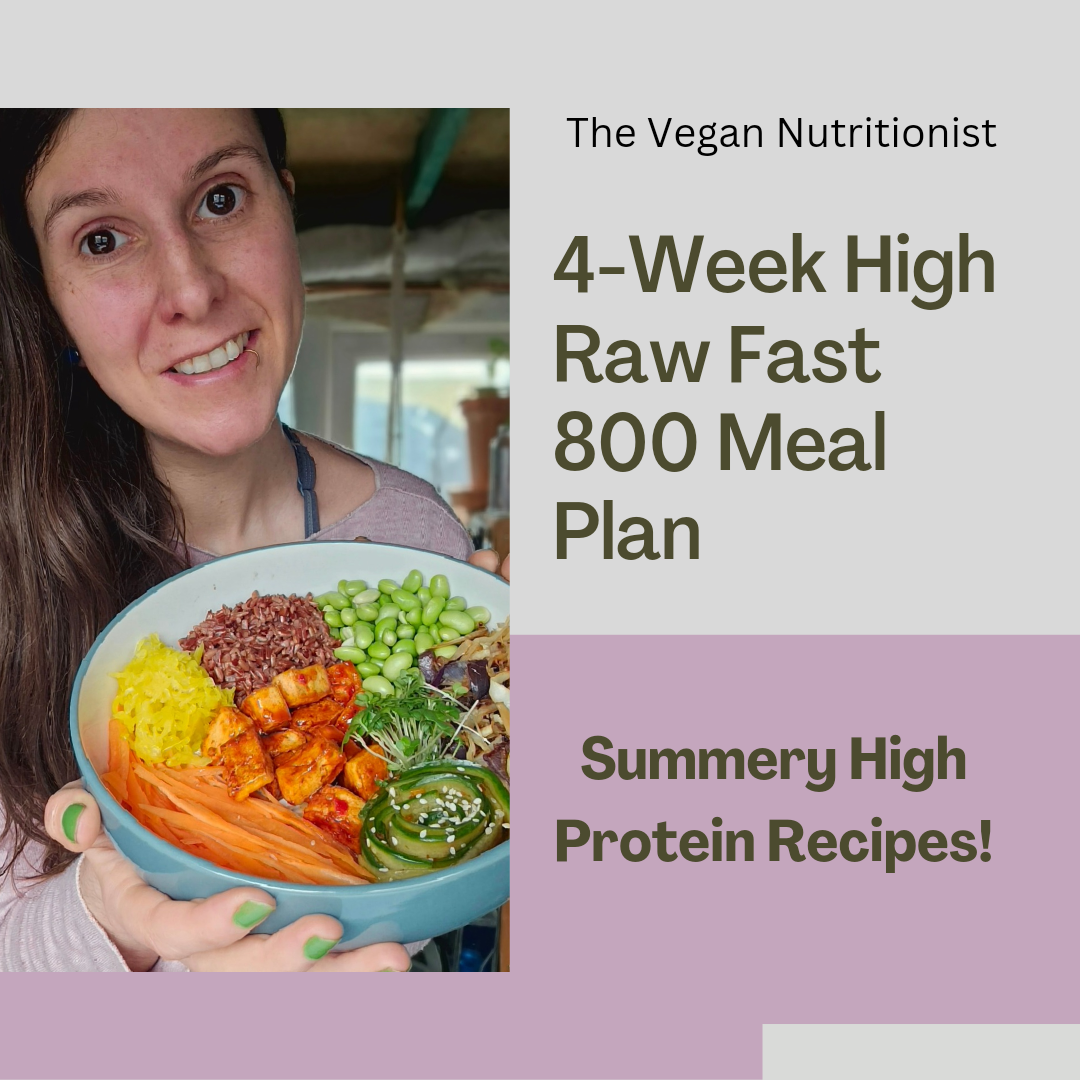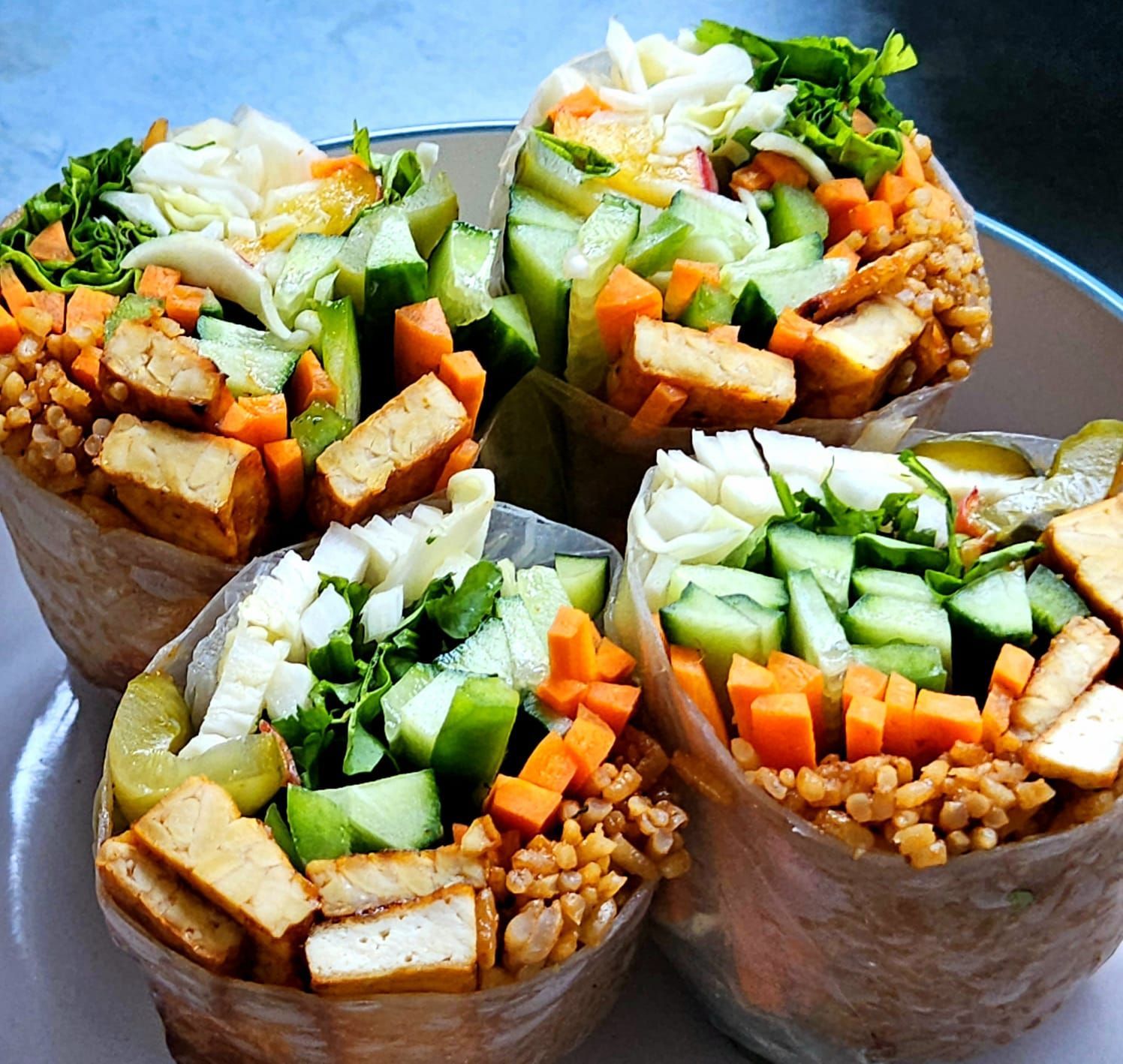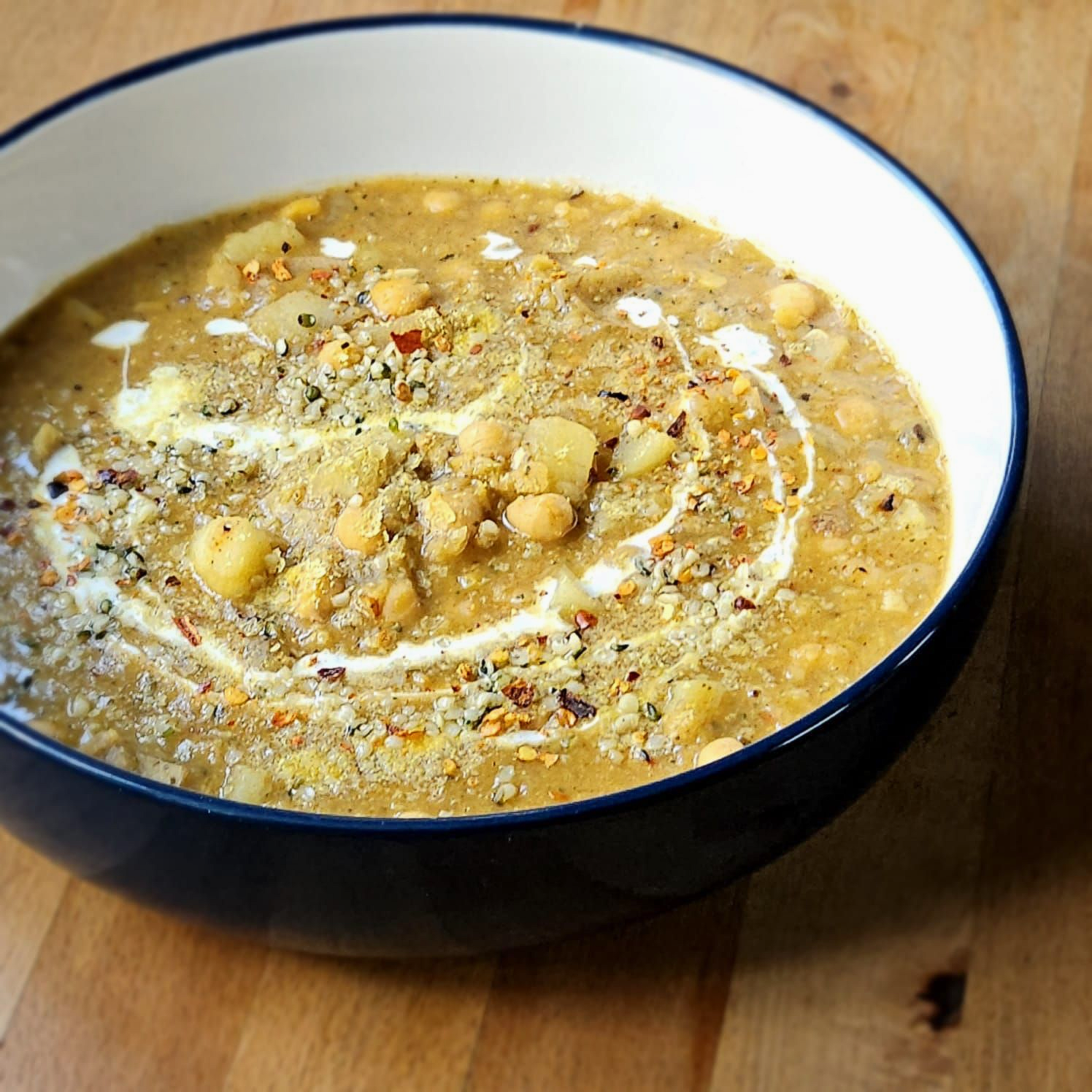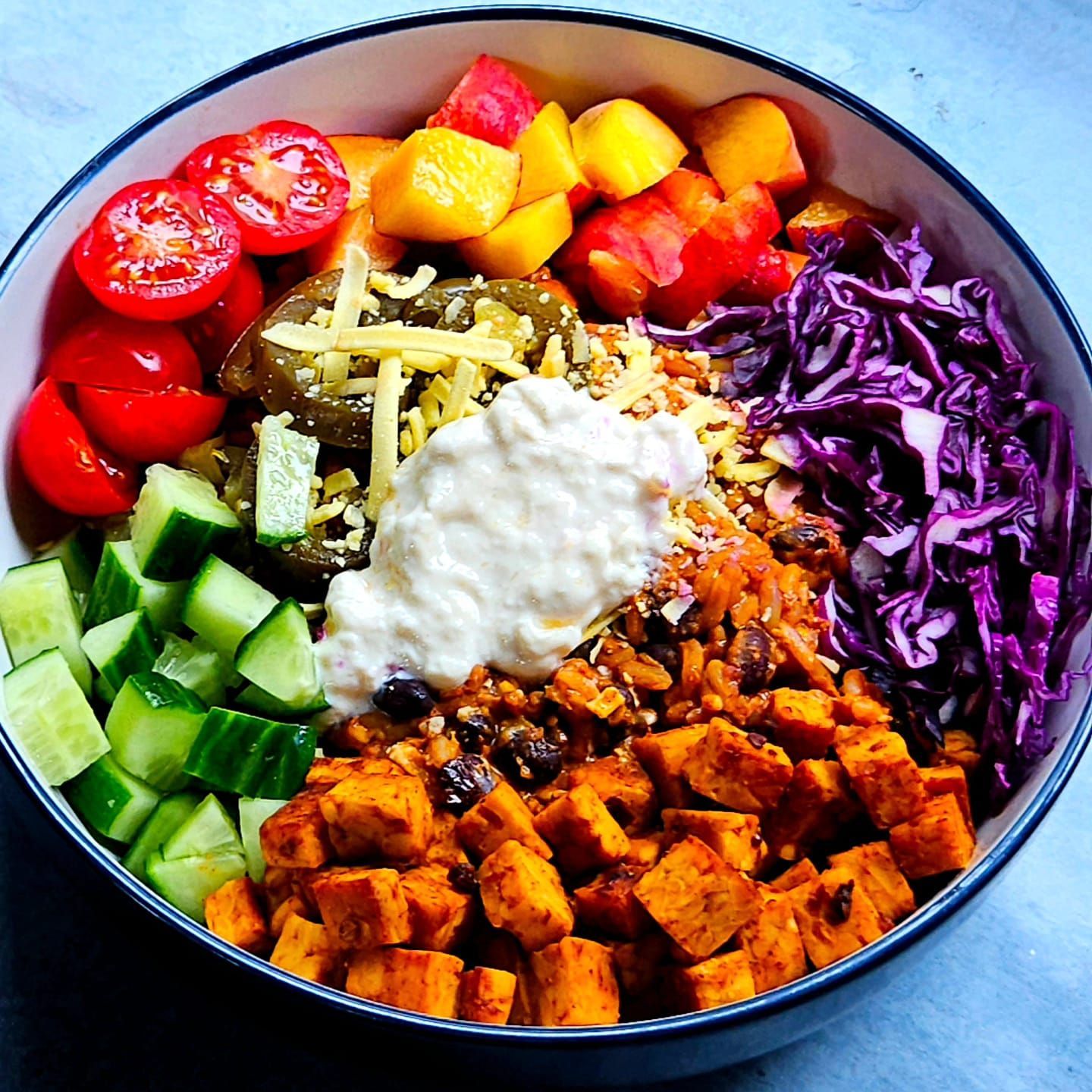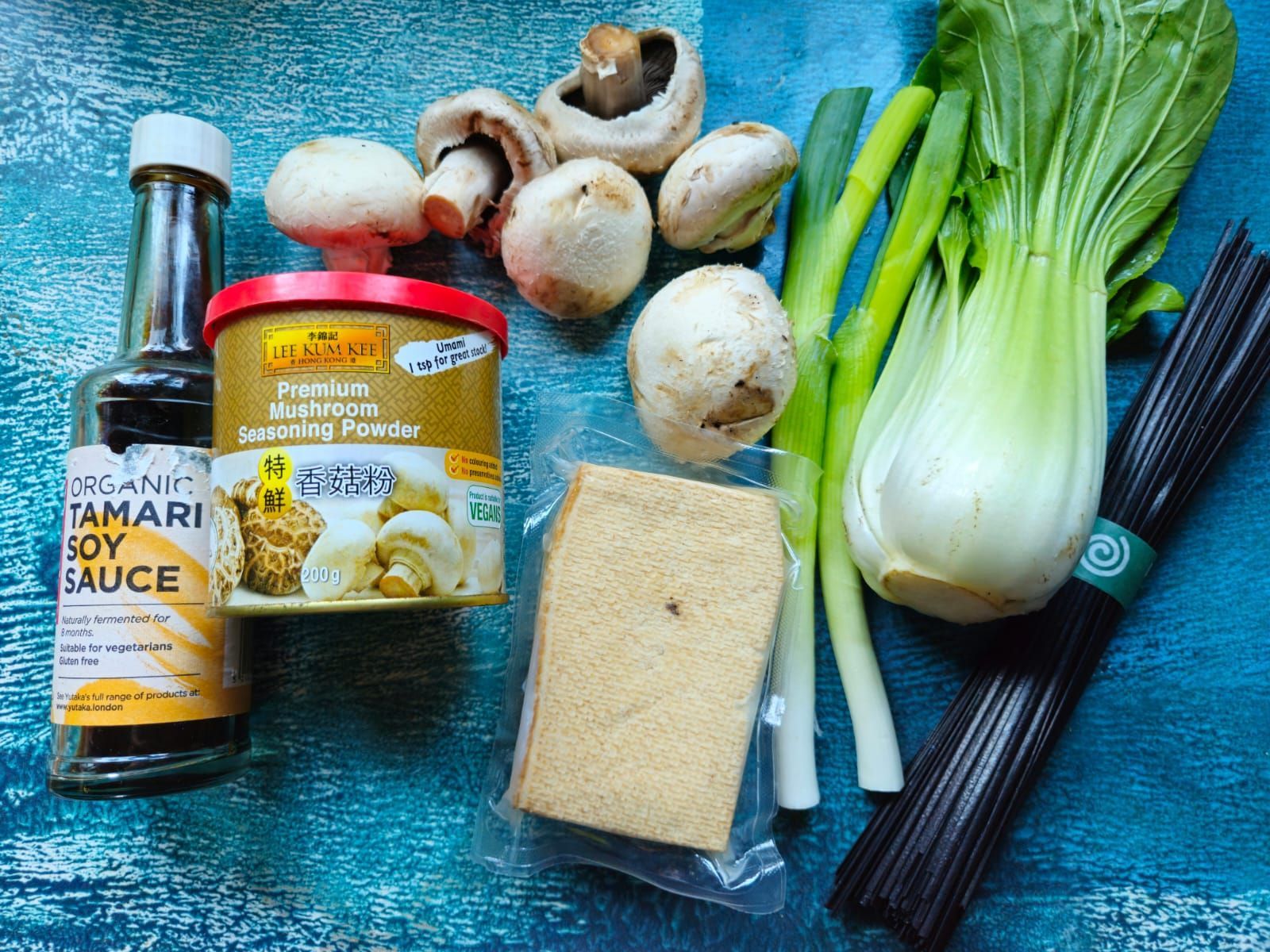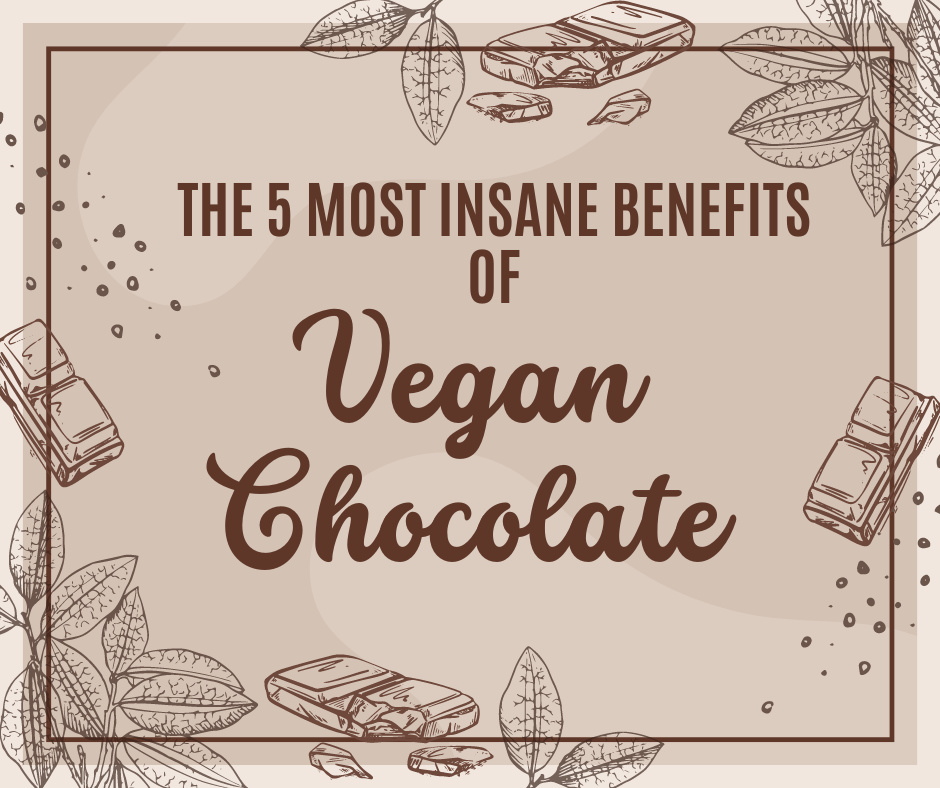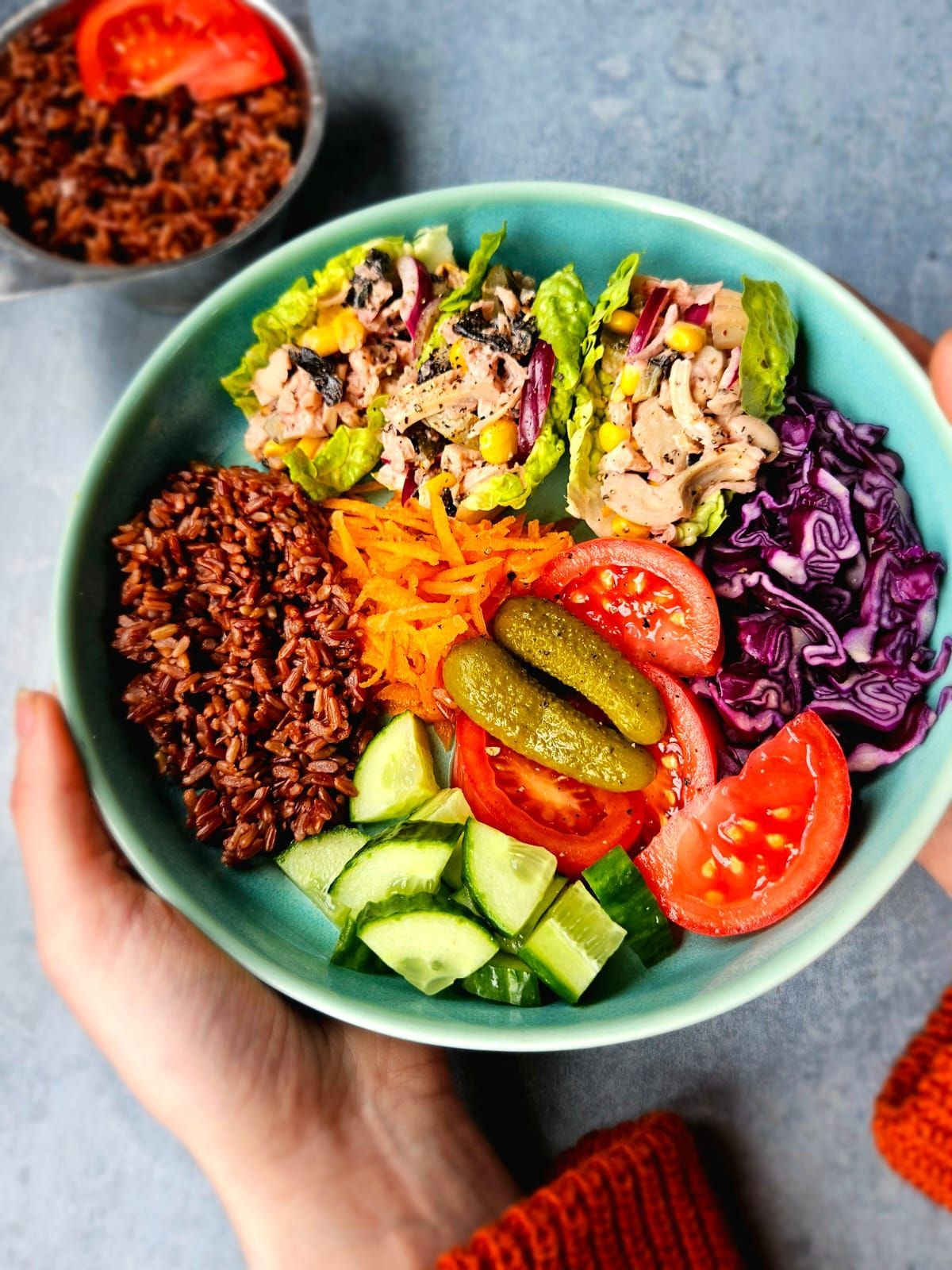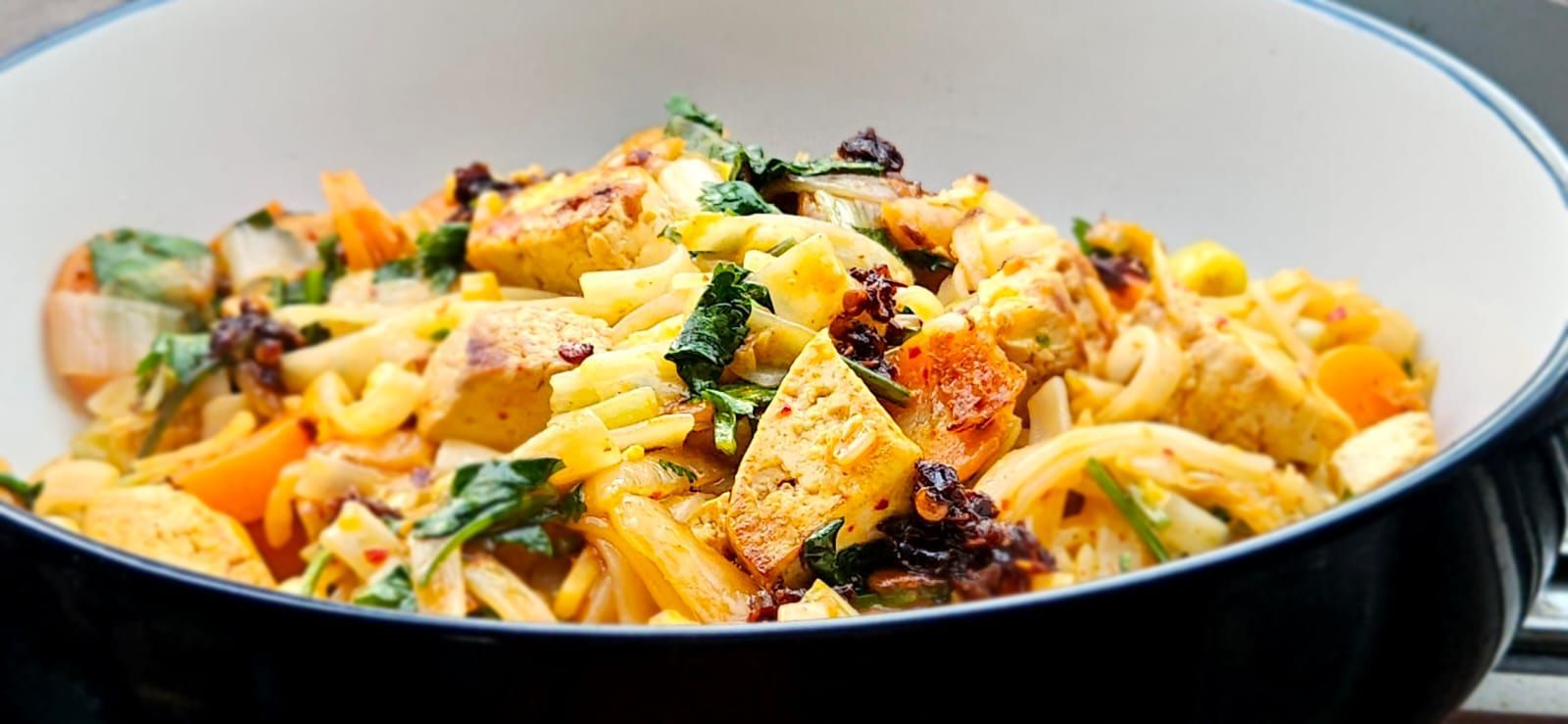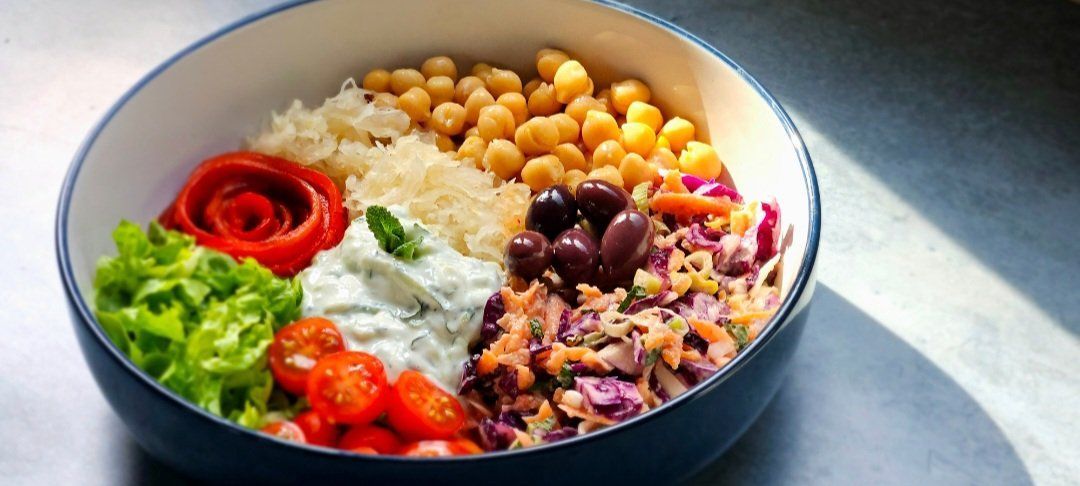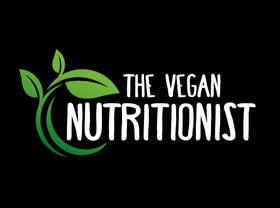Getting Protein on a Vegan Diet ~ Without Protein Supplements
Most people know that protein is important for health, but might not be sure how to get enough on a vegan diet without adding protein powders. It's actually much easier than you think!
This article contains affiliate links. I may gain commission if you decide to make a purchase through any of my links or promo codes.
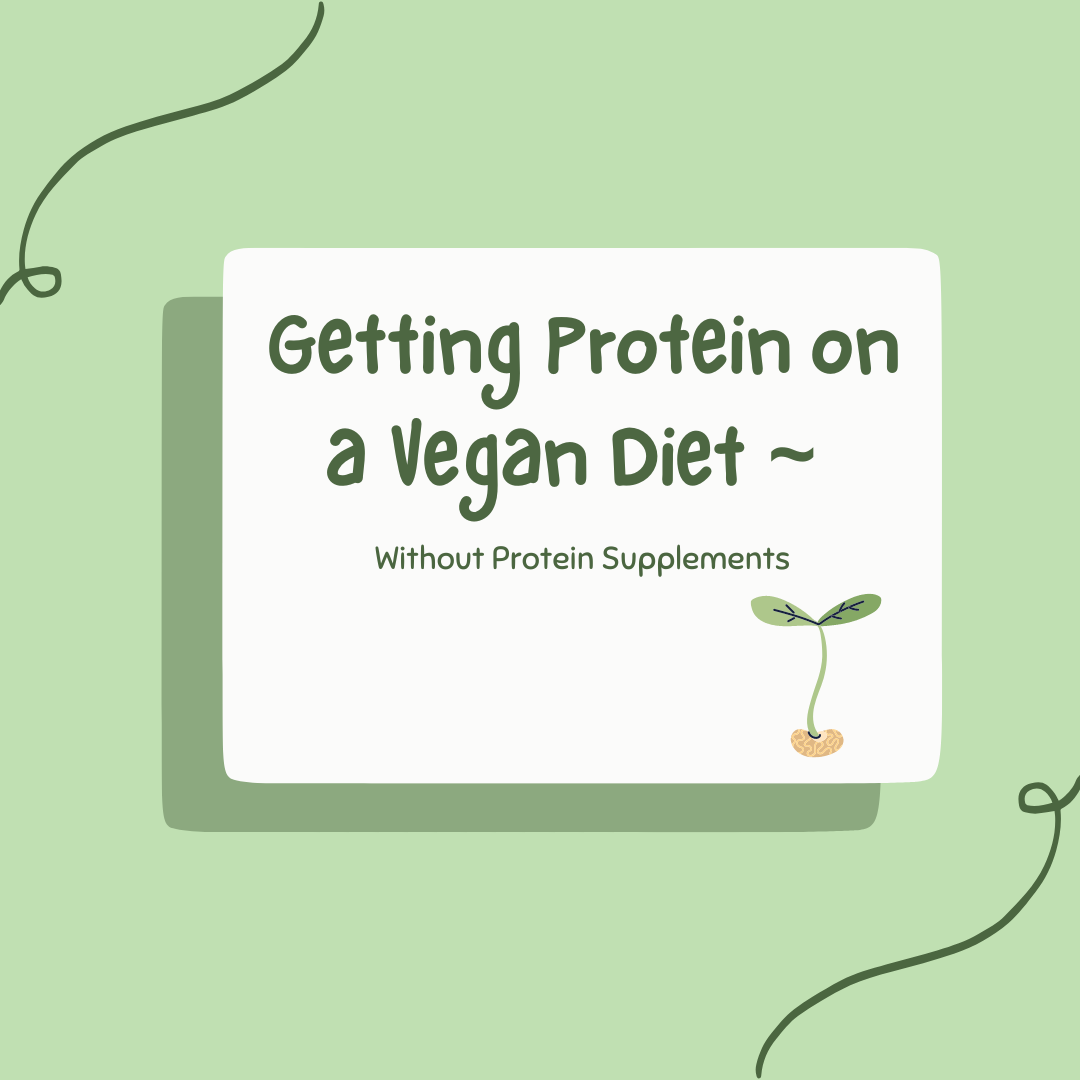
There are a few ways most people think about getting protein on a vegan diet such as through meat substitutes, protein powders, and plant-based snacks with added protein, but the most important way often overlooked is to make sure you're eating a variety of nutrient-dense whole foods every day, and this way alone can actually provide you with all the protein you need.
A diet that is rich in whole-plant foods such as vegetables, fruits, whole grains, beans, legumes, nuts, and seeds is a healthy eating pattern that can be an important component of a healthy lifestyle and also a weight loss or fitness program.
These foods provide many health benefits and are naturally low in fat, sodium, and calories. However, it is important to choose healthy sources of plant proteins and look to reduce or eliminate processed foods when aiming to increase your protein intakes naturally.
Exercise is an important part of any weight-loss or fitness program. In fact, it is one of the most effective ways to lose weight and get fit. But in order to benefit from exercise, it is important that you get an adequate amount of high-quality protein in your diet. This helps to prevent muscle loss and promotes muscle growth to help you gain muscle mass and lose body fat. It also helps you to recover more quickly from intense exercise so that you can get back to your workouts sooner.
Thankfully, a wholefood plant-based diet provides a wide variety of vegan protein sources to choose from, including legumes such as lentils and chickpeas, tofu, peas, soybeans, and beans. So it is important to learn about the different types of vegan protein sources and how to incorporate them into your diet to meet your fitness goals.
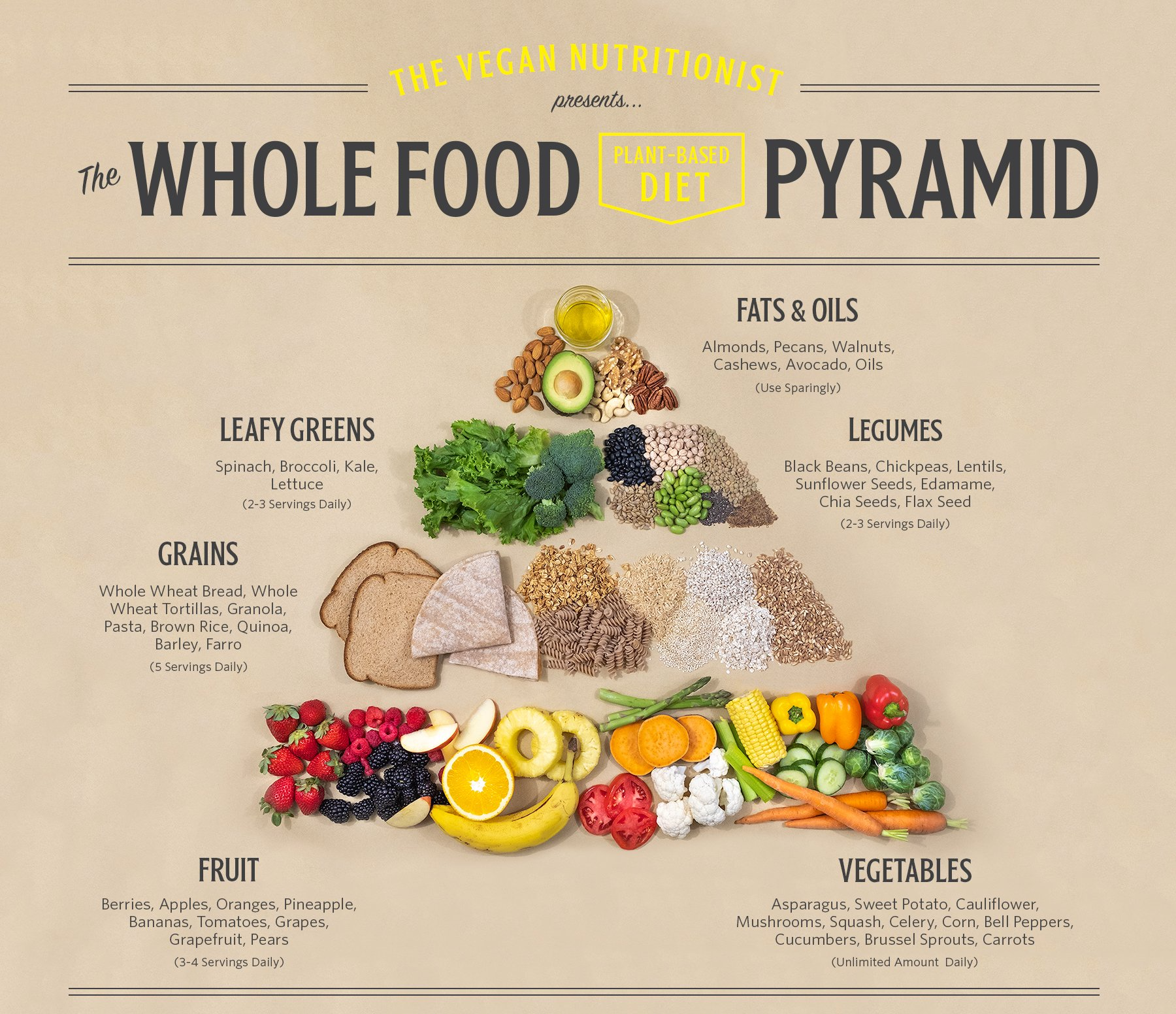
What is protein?
Protein is an essential nutrient that your body uses to build and repair tissue (such as muscles), make enzymes and other chemicals needed for normal body function, and keep your immune system healthy. It can be obtained from both plant and animal sources. However, not all sources of protein are equal in terms of quality and nutritional benefits.
Plant-based proteins are generally easier to digest than animal proteins, contain more fibre and very little saturated fat, and are often more sustainable than other protein sources. For these reasons, it's generally recommended that you consume most of your protein from plant-based sources while limiting your intake of animal proteins.
Whole food sources of plant protein:
In order to maintain a healthy body, it is important to get enough protein in your diet. Some great vegan sources of protein include: hemp seeds, peas, whole food soy products (tempeh, edamame, tofu, and soya milk), nuts and nut butters, quinoa and beans. These foods contain all of the essential amino acids which your body needs in order to function properly.
The amount of protein that you need depends largely on the amount of physical activity that you do each day. As a general rule, men require about 56 grams of protein per day while women need about 46 grams per day. However, the requirements vary for each individual depending on their gender, height, weight, and activity level.
However, keep in mind that over 100 grams of protein per day is not usually recommended as it can put a strain on the kidneys and potentially lead to other health issues. So always take it easy on the protein, aiming for just slightly more than your recommended intake, as after all, our bodies do not store protein, we use only what we need each day and excessive consumption especially from animal products and protein supplements can lead to negative health consequences.
The following are some popular vegan protein sources along with their approximate amounts of protein per serving:
- Hemp Seeds: A 2 tablespoon serving of hemp seeds contains about 14 grams of protein.
- Peanuts: A one-ounce serving of peanuts contains about 7 grams of protein.
- Soybeans: One cup of soybeans contains about 20 grams of protein.
- Peas: One cup of frozen peas contains about 9 grams of protein.
- Quinoa: One cup of cooked quinoa contains about 8 grams of protein.
- Beans: One cup of cooked beans contains about 15 grams of protein.
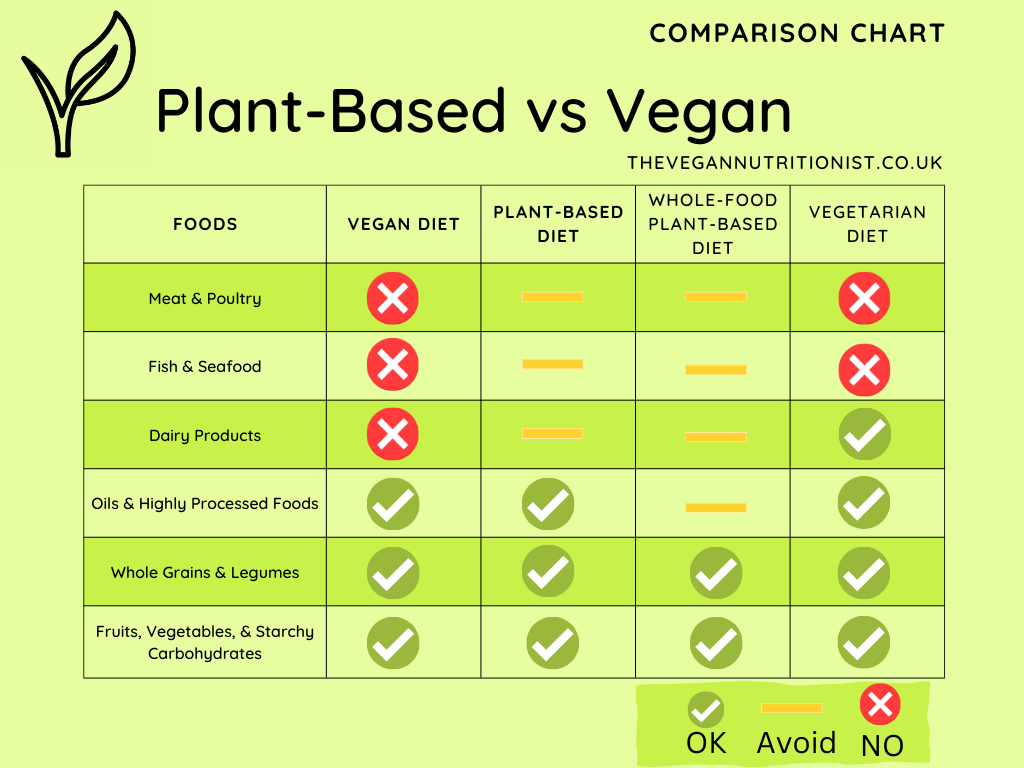
What does the term "plant-based" mean when it comes to food?
Eating a plant-based diet simply means replacing some or all of the animal products in your diet with plants. Examples of plant-based foods include fruits, vegetables, grains, legumes, nuts, and seeds. A common misconception is that in order to be on a "plant-based" diet, you're eating a vegan diet, which is not always the case.
Vegans avoid all animal-derived products, including meat, dairy, eggs, and honey, whilst also avoiding the contribution to industries that use and exploit animals. For example, animal circuses, zoos, aquariums, as well as using alternatives to products such as leather, wool, and down, some people who eat a plant-based diet consume small amounts of these foods on occasion and may also wear leather and contribute to the profits of industries that use animals. However, the primary focus of a plant-based diet is consuming more plant foods and reducing your intake of animal products.
With regards to a vegan diet there is more focus on eliminating the need to cause unnecessary suffering to animals, and the planet and therefore practicing being vegan is essentially a lifestyle change that limits animal exploitation to what is practical and possible, including diet. Most people who make the decision to pursue a vegan lifestyle, choose to avoid animal products at all costs because of ethical and moral reasons, as well as environmental, extinction, and climate concerns.
Nonetheless, the need to consider the impact of all other creatures on the planet when we make a choice, as not to eat them, is paramount and that we should all become as educated as possible about it. So, as we begin to move away from traditional diets that utilise the slaughtering of animals for food, we are faced with a world where we are required to not only be educated about our choices but also be able to implement them in a way that does not impose an unnecessary suffering on anyone, including ourselves in the process.
This is not to say that people who choose to maintain a vegan lifestyle must go hungry or suffer nutritionally; in actual fact, there is an abundance of highly nutritious vegan foods to choose from, rather, it means that we need to make sure that we are making smart choices when we are choosing how to proceed in our lives.
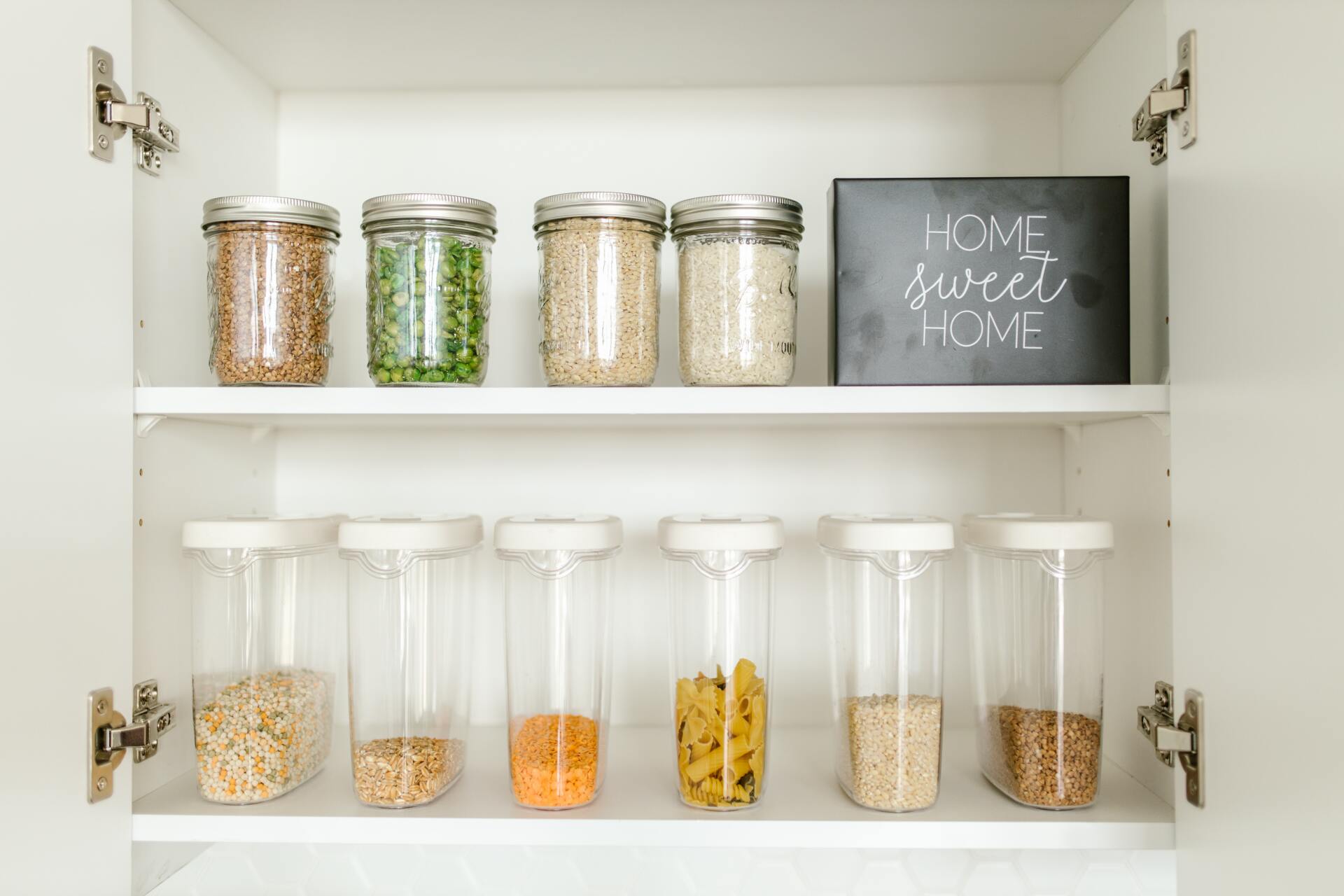
What are some examples of plant-based protein sources?
A wide variety of plant-based proteins exist, including both complete and incomplete proteins. Complete proteins are those that are comprised of all of the nine essential amino acids that the body can't produce on its own and must be obtained through your diet.
Examples of complete protein sources include soy (edamame, tempeh, tofu), peas, hemp seeds, chia seeds, quinoa, and buckwheat. Incomplete proteins provide some of the essential amino acids, but not others. These sources need to be combined with one another food to create a complete protein source.
Examples of incomplete protein sources include grains, most nuts and seeds, beans, and fruits and vegetables. For example, combining beans and rice creates a complete protein source because both beans (which have lysine) and rice (which has isoleucine) provide the body with amino acids found in other proteins and are considered complementary.
Therefore, the amino acids provided are enough for the body to synthesize the protein it needs.
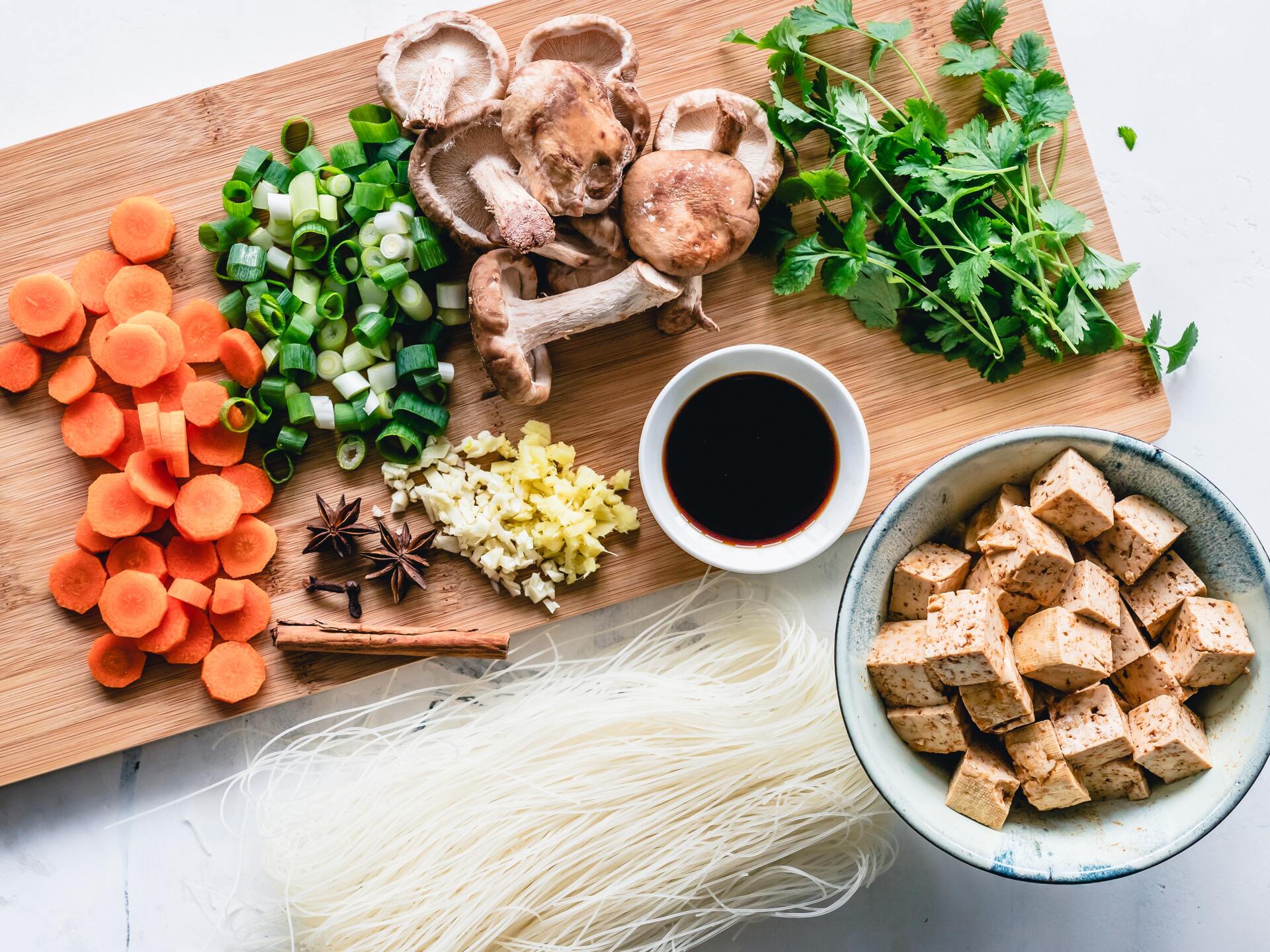
What are other sources of vegan protein?
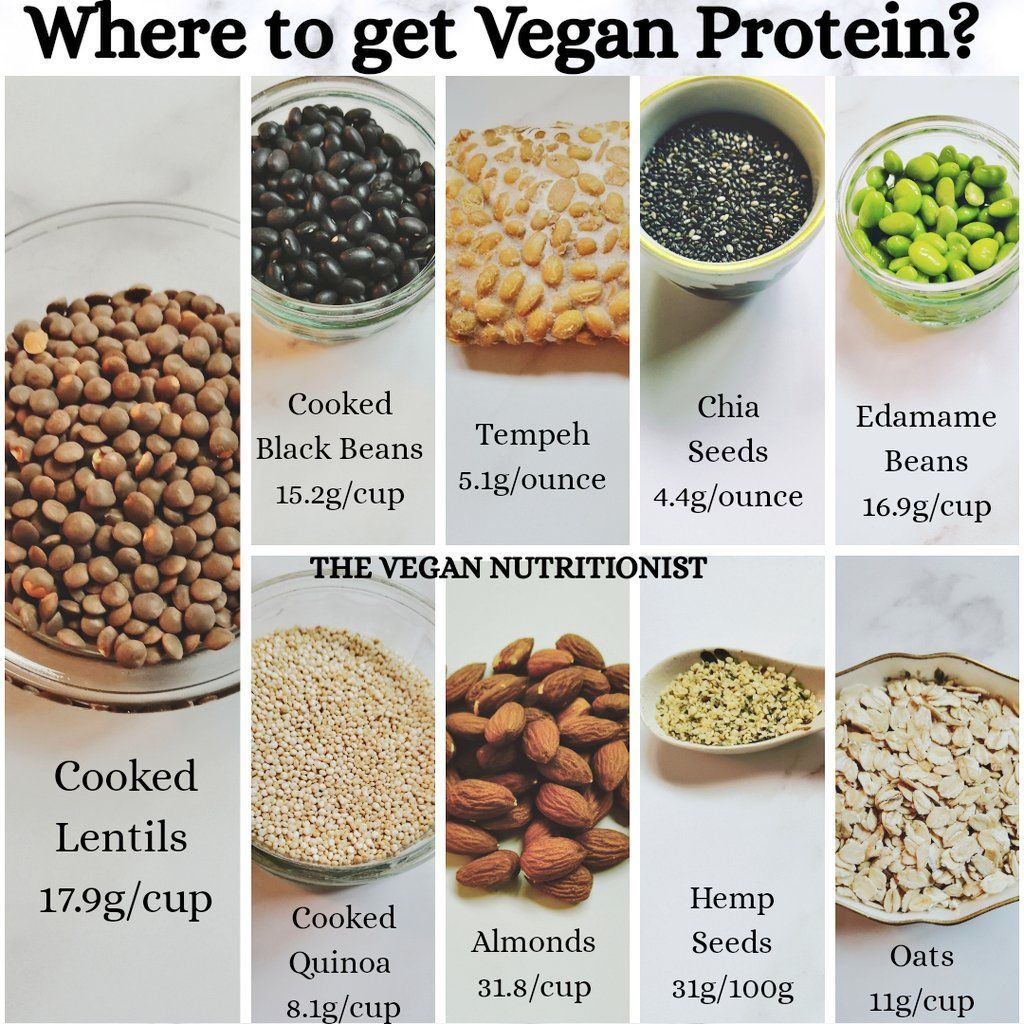
What is the difference between whole-plant foods and processed food?
"Whole food" means that the food has not been processed or altered in any way and contains only natural ingredients. Including these unprocessed foods in your diet is one of the most important aspects of a healthy lifestyle.
What you eat can have a direct impact on your health and well-being. There are two main types of foods - whole foods and processed foods. It is important to know the differences between these two types of foods so that you can make healthy choices when grocery shopping and preparing meals.
Whole foods are foods that are unprocessed and unrefined. They are rich in nutrients and typically contain beneficial fats, proteins, vitamins and minerals.
Examples of whole foods include fresh fruits, vegetables, whole grains, beans, nuts and seeds. Processed foods are foods that are manufactured or altered in some way. They usually contain high amounts of sugar, salt and/or fat and offer very little nutritional value.
Examples of processed foods include packaged baked goods, fast foods, preprepared foods, and canned foods. Processed foods are typically high in calories and low in essential nutrients. Eating processed foods can lead to weight gain, heart disease, nutrition deficiencies, and other health problems.
A diet that consists of mostly whole foods will provide you with the nutrients that you need to stay healthy and prevent chronic diseases. A diet that consists of mostly processed foods will not provide your body with the nutrients that it needs to stay healthy and prevent chronic diseases.
Thus, it is important to eat a diet that consists of whole foods instead of processed foods.
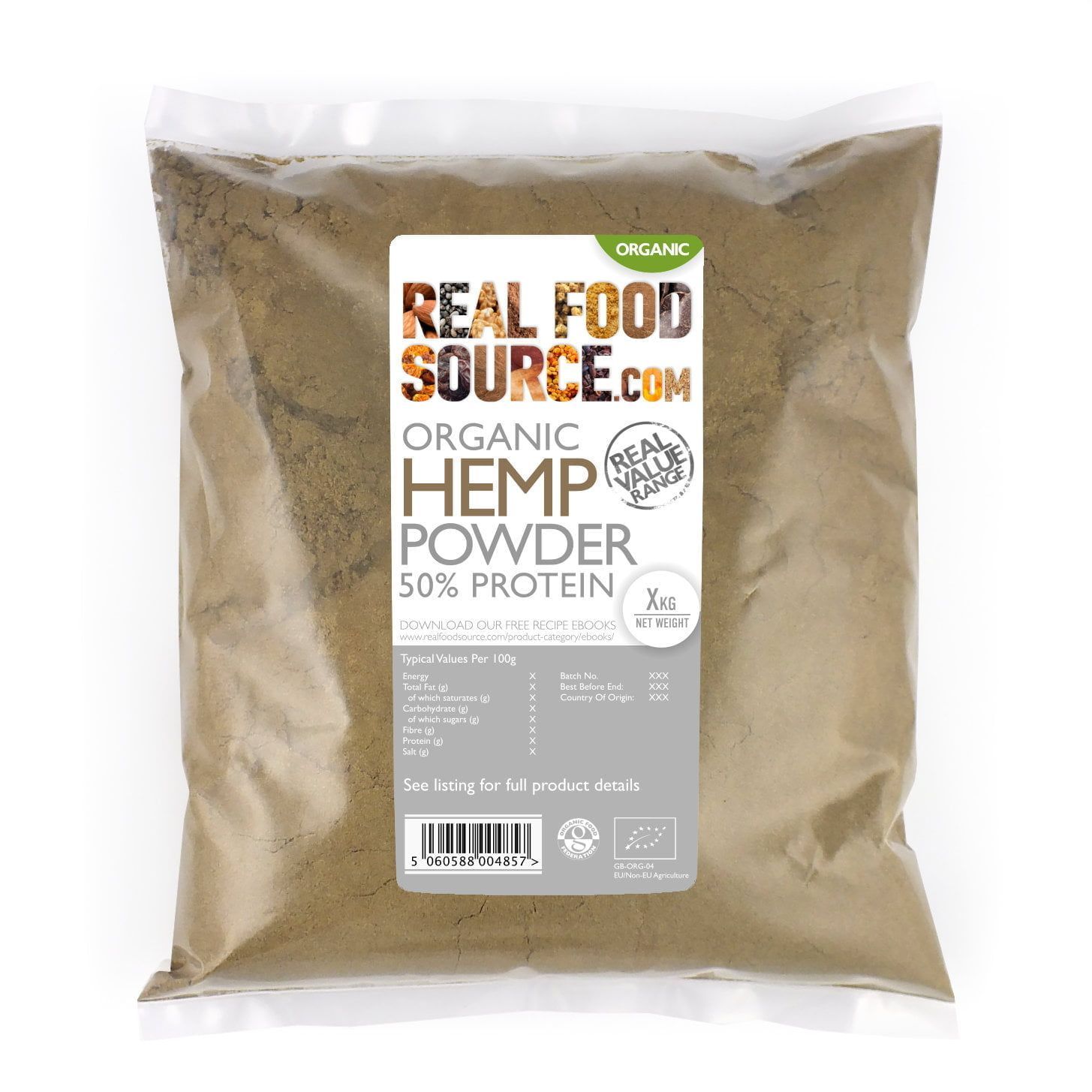
Is protein powder different from whole food sources?
Some forms of plant-based protein found in whole foods can also be isolated and sold as a powder supplement. These powders may contain other ingredients such as added sugars, artificial flavorings, thickeners, and chemically synthesized vitamins and minerals (i.e. nutrients isolated and not from their natural sources, read more about this here and here). Protein powders have been found to contain unsafe levels of contaminations including heavy metals like lead, cadmium, and arsenic, view more on the hidden dangers of protein powders here.
When you consume these products you are ingesting not only the protein but also potentially dangerous contaminants. For this reason, it is not recommended that you ingest protein powder supplements on a regular basis and instead focus your dietary efforts on consuming high-quality whole foods that contain protein and nutrients in their natural form.
There are of course healthier alternatives to both conventional protein powders and vitamin/mineral supplements, for example pure hemp protein powder contains just one ingredient hemp, check this out here. I've also discovered a website that sell natural organic and high quality supplements with their sources from whole plant foods, see here and use code "wyles15" for a 15% discount on purchases over £20.
Thanks for reading!
Article by Rose Wyles - The Vegan Nutritionist
For professional assistance in adopting a healthy and nutritious plant-based diet, kindly reach out to me using the form provided below. I can help you address any possible nutrient deficiencies or health concerns and ensure that your nutritional needs are met through the consumption of plant-based foods.
Additionally, use my services to create a customised plan for reaching your health and wellness goals which includes personalised meal plans, nutritional advice, tasty plant-based recipes, and more.
Start your journey to better health and wellness today!
Share this Post!
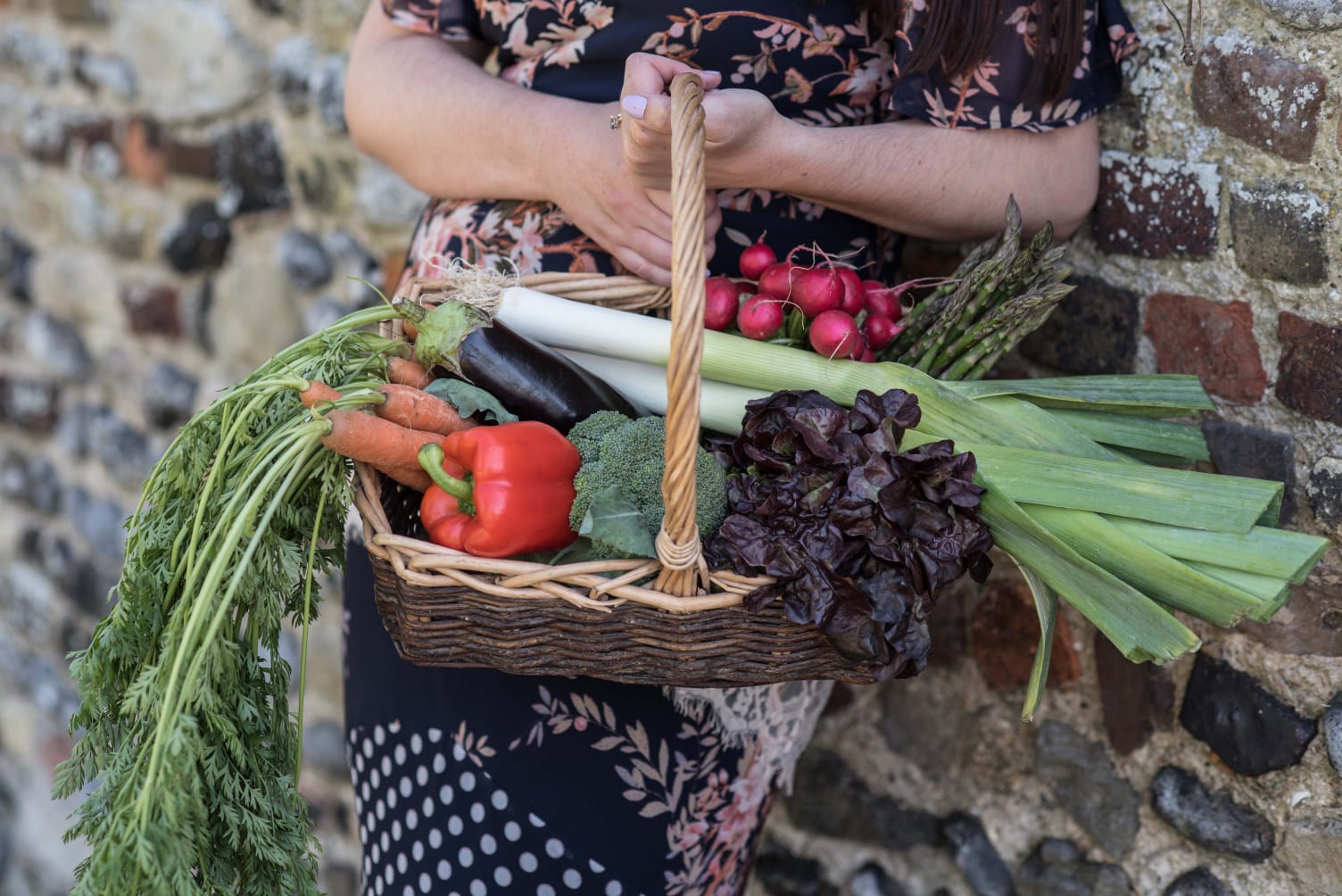
Reach out by sending me an email
Need assistance with your diet or health goals? I'm here to help. Send me a message and I'll be in touch.
